Modal Header
Some text in the modal.

Why Sweden Is Top for Sustainable Tourism
Jenny Jonevret, Senior Project Manager at Visit Sweden HQ in Stockholm, discusses why Sweden is ranked top for Sustainable Tourism.
This is part of a series of articles entitled #sustainablesunday, in it we always start by asking people what Sustainable Tourism means to them. What does it mean to you?
For me, sustainability means meeting our own needs without compromising the ability of future generations to meet their own needs. Sustainability must be viewed holistically with all dimensions such as social, economic and environmental sustainability combined.
Sweden recently came first in the list of ‘Top Countries for Sustainable Tourism’, produced by Euromonitor, why do you think Sweden is ranked as the best country for sustainable tourism?
Sweden generally is strong in governance, ability to handle environmental challenges, how well we meet the UN’s global environmental goals, comply with laws and regulations linked to sustainability. However, people generally don’t admire a country because of its success, but for what the country can contribute to their lives. This makes Sweden more attractive to travel to. In our quest to make Swedish tourism grow and to get travellers to come here, we use our country’s strong position.
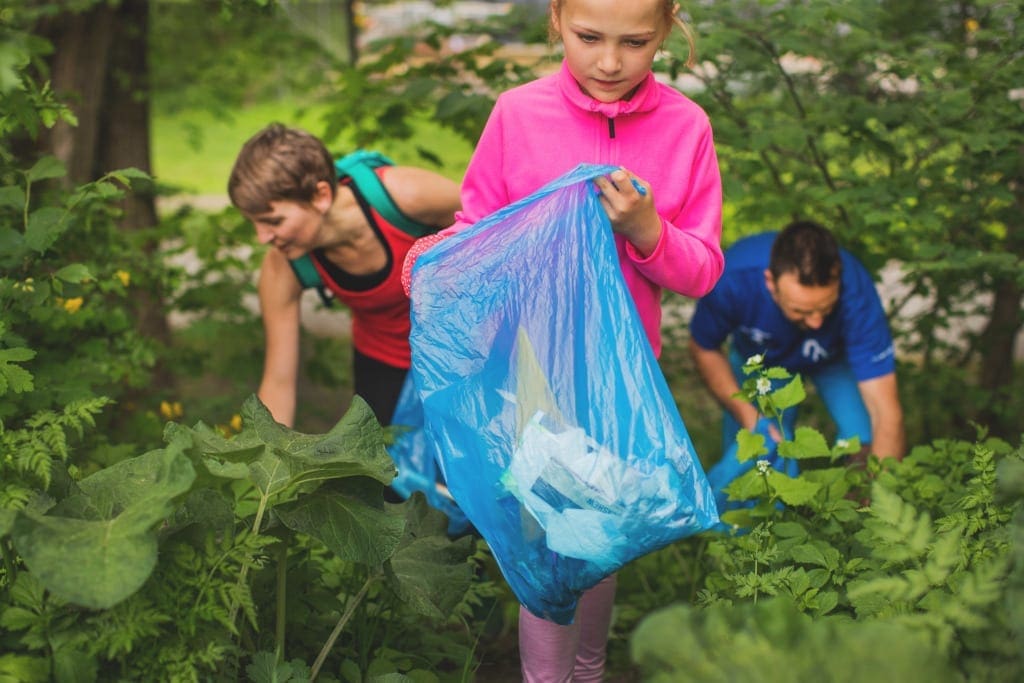
Sweden has a lot to offer as a sustainable tourism destination – accessible nature and our close to nature lifestyle, innovative dining experiences with respect for both humans and the environment, and local cultural experiences with design and architecture created for people, to be used. We show our Swedish values, equality between the sexes and everyone’s equal value, regardless of who you are, how old you are or who you love.
I understand that part of your aim is to increase the pace of the transformation of the Swedish hospitality industry from a linear one to a circular one. How are you doing this?
Based on the knowledge that we must work together with the hospitality industry to build a long-term sustainable tourism destination we, therefore, work hard to become a unifying force in Sweden. By being involved and contributing with insight, we are increasing the pace of change in the hospitality industry from a linear economy to a circular economy. We do this, for example through activities such as roundtable talks, dialogue days, government cooperation, NSU in Sweden and local networks abroad.
Can you explain more about the role you are playing in the delivery of Agenda 2030 delivery, and the net zero emissions 2045 target?
As a nation, Sweden wants to be a leader in the implementation of the 2030 Agenda – both nationally and globally. As a national tourist board owned by the government, we are also working with selected Sustainable Development Goals.
The assignment Visit Sweden has been given is to create economic growth in the long-term – our marketing efforts should aim to contribute positively in economic, social and environmental terms. Using our role as NTO, we actively drive the sustainability issue in Sweden and the Swedish hospitality industry’s delivery to Agenda 2030. The goals and sub-goals in Agenda 2030 are linked to the overall goals in our business plan, our marketing plan and the initiatives that we launch together with the Swedish hospitality industry. All to strengthen Sweden’s position as a sustainable destination.
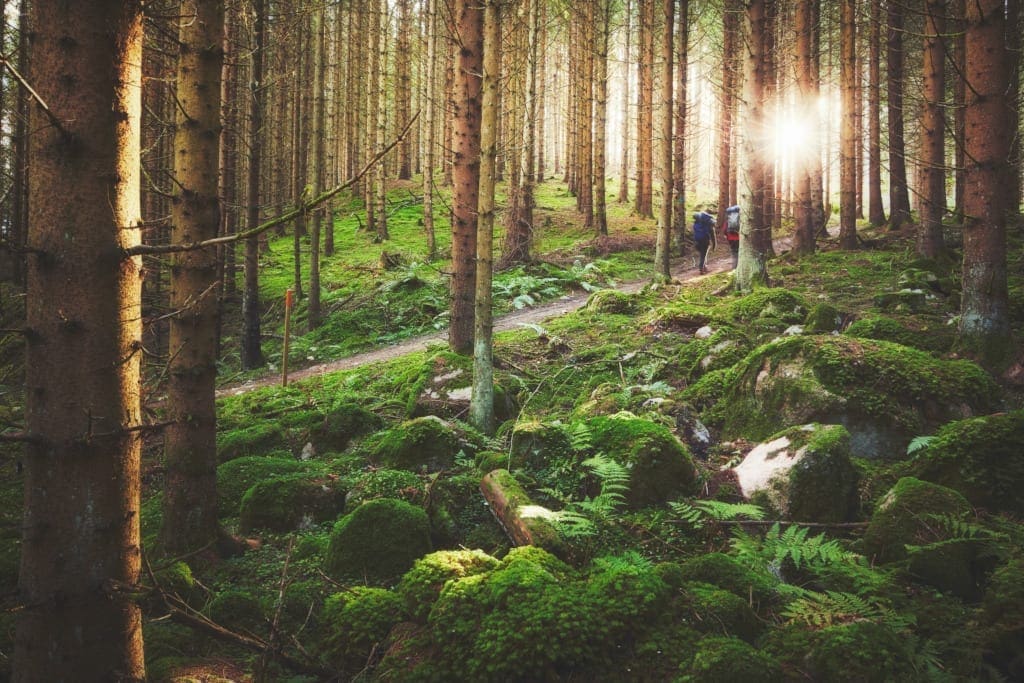
Sweden sits on the outskirts of Europe, so the obvious challenge connected with ecological sustainability has to do with our infrastructure and transport. Some solutions are:
- Making visitor stays longer and all-year-round (increase numbers at times where capacity exists);
- Encouraging touring when they arrive at a destination, including pushing sustainable ways to get around;
- Highlighting sustainable products; and
- Smart target group segmentation – for example focusing on segments that can travel to Sweden by train (or car).
You talk about Sweden’s ‘sustainability lifestyle’, can you elaborate on this, a well as the role of women?
For Swedes the accessible nature has an important place in their lives. Nature contributes to the Swedes’ down-to-earth lifestyle, where both small and large experiences of nature make us feel better and become more creative. And in Sweden, everyone can enjoy this. The right of public access invites everyone who wants, to go out into the forest and the countryside. As long as you don’t disturb and don’t destroy, you can enjoy nature as much as you want. Even if you live in the middle of a city, nature is always around the corner; simple, authentic and welcoming, rich in variety and with something for everyone.
The overarching Swedish principle for gender equality is that everyone, regardless of gender, has the right to work and support themselves, to balance career and family life, and to live without the fear of abuse or violence. Gender equality implies not only equal distribution between men and women in all domains of society. It is also about the qualitative aspects, ensuring that the knowledge and experience of both men and women are used to promote progress in all aspects of society. The current Swedish government has declared itself a feminist government, devoted to a feminist foreign policy. Even if the idea has been met with both praise and criticism – domestically and internationally – the word feminism is not as charged in Sweden as in many other countries. The government uses the ‘F word’ to stress that gender equality is vital to society and that more needs to be done to achieve it.
It’s no coincidence, then, that 12 of the 22 government ministers are women.
“72h Cabin” and “Edible Country” are two examples of tailor-made, unique and experience-based sustainable tourism activities in Sweden. Can you describe these in more detail?
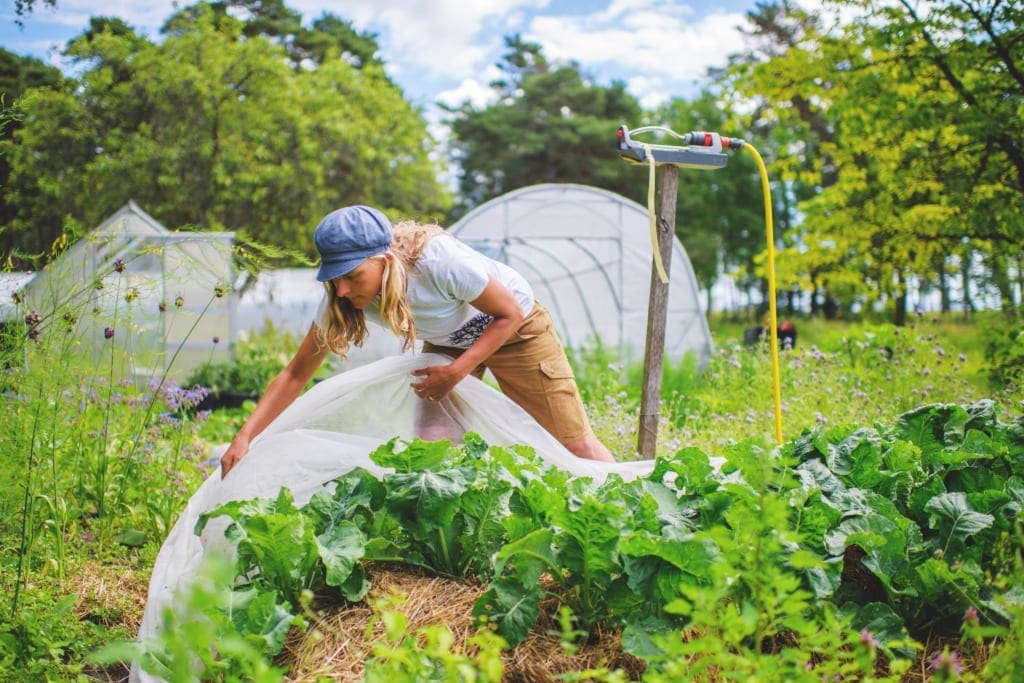
72h Cabin : To explore the effects of the unique relationship Swedes have with nature, Sweden carried out a case study in September 2017. Five people with some of the most stressful jobs got to experience Sweden’s ‘close-to-nature’ lifestyle, whilst their well-being was measured by leading researchers. During the study, the participants stayed in custom-built cabins made of glass to be as close to nature as possible. After 72 hours, they all showed a decrease in blood pressure, stress levels and heart rate – and they became more creative too.
Edible Country: In Sweden, naturally healthy food can be found just around the corner – in our forests, lakes and meadows. In collaboration with four Michelin-starred chefs, we have created inspirational menus featuring local produce to help you experience the Swedish pantry. Fine do-it-yourself dining means cooking gourmet food for free, with ingredients that you can find in Swedish nature.
Promoting local tourism is a key element in developing sustainable tourism. Do you agree? How is Visit Sweden promoting local tourism activities?
Yes! While tourism creates an economic input for the local community, the visitor gains from contact with local people who can guide them and show them the unique nature and activities.
And to be able to contribute to a more sustainable tourism industry, Visit Sweden is marketing both the urban and the rural, all four seasons and are focusing on sustainable products.
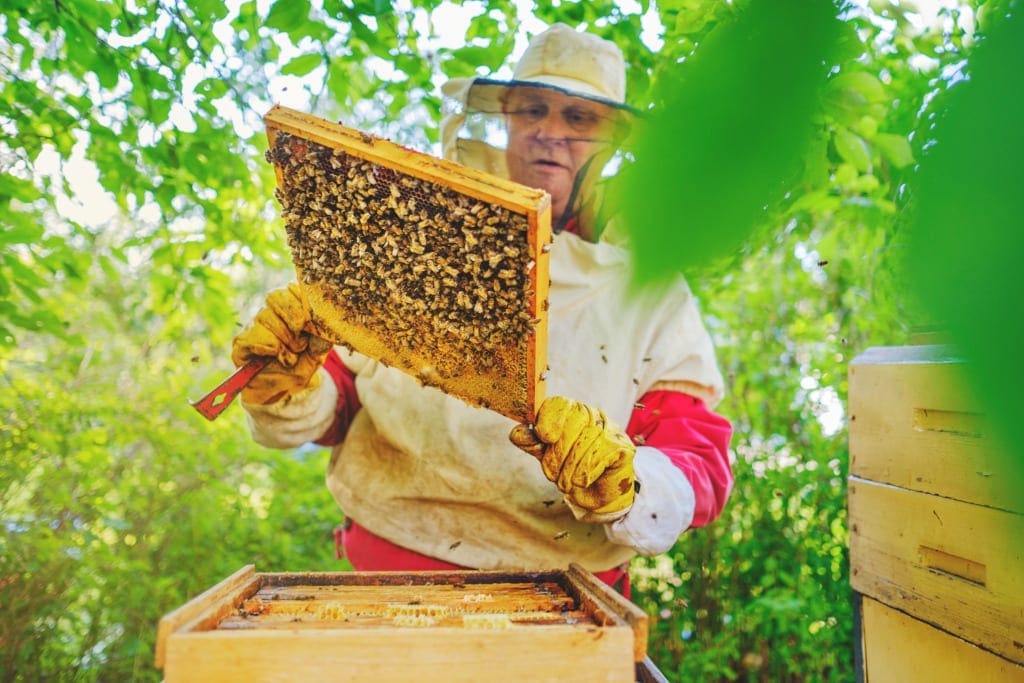
How can travellers interact with local communities to ensure that the benefits of their tourism expenditure reach the people who need it most?
For example, through trusting a local guide to guide travellers through Swedish nature. Travellers can look for labels such as ‘Nature’s Best’. Nature’s Best is a certificate that verifies ethical, high-quality nature experiences across Sweden, and many of Nature’s Best destinations are run by passionate enthusiasts who know lots about both the local scenery and culture.
You invite others to participate in your work. How can people do that?
As a national player and community builder, we can influence, engage and inspire others toward a positive sustainable development of the Swedish visitor industry. We invite others to participate in our work where we inspire and engage others to become more sustainable.
Continue your reading of why Sweden is top for sustainable tourism with Zero Island: a Truly Sustainable Holiday .
For more information on Sweden’s Sustainable Tourism drive:
Visit : https://visitsweden.com/ . All images provided by Visit Sweden. Main image: Lucas Günther/imagebank.sweden.se; background image: Per Pixel Petersson/imagebank.sweden.se.
Enjoy this post? Subscribe to our newsletter for monthly updates:
Explore topics.

Mark Bibby Jackson
Before setting up Travel Begins at 40, Mark was the publisher of AsiaLIFE Cambodia and a freelance travel writer. When he is not packing and unpacking his travelling bag, Mark writes novels, including To Cook A Spider and Peppered Justice. He loves walking, eating, tasting beer, isolation and arthouse movies, as well as talking to strangers on planes, buses and trains whenever possible. Most at home when not at home.
Read more posts by Mark Bibby Jackson →
Related Content:
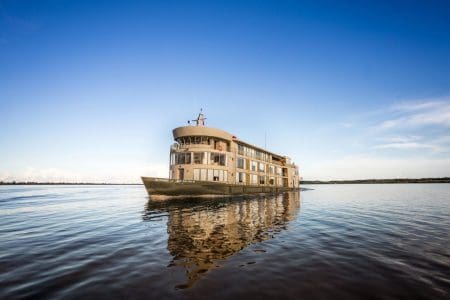
Leave a Reply Cancel reply
Your email address will not be published. Required fields are marked *
Explore Further
- Experiences
- Travel Destinations
- Southeast Asia
- Events & Festivals
- Opinion / Profiles
- Business Travel & Travel Industry
- Travel News
Travel Topics
- Travel Guides
Recent Posts
- One Car, Four Generations and a Dragon on a Pas-de-Calais Holiday 27 April 2024
- DDP Shipping: Simplifying International Logistics for Businesses 27 April 2024
- Why Eco-Friendly Travel & Wellness Practices Matter After 40 27 April 2024
- Thailand Is One of the Top Choices for a Vacation 25 April 2024
- Why Should You Travel the World? 25 April 2024
- Exploring the Ultimate Investment Destination: How Buying Property in Dubai Enhances Your Travel Experience 24 April 2024
- How Vegan Meals Can Fuel Your Adventure Travel 24 April 2024
- Environment
- Road to Net Zero
- Art & Design
- Film & TV
- Music & On-stage
- Pop Culture
- Fashion & Beauty
- Home & Garden
- Things to do
- Combat Sports
- Horse Racing
- Beyond the Headlines
- Trending Middle East
- Business Extra
- Culture Bites
- Year of Elections
- Pocketful of Dirhams
- Books of My Life
- Iraq: 20 Years On
The world's top 10 countries for sustainable tourism, from Sweden to Slovenia
The covid-19 pandemic crippled tourism, but the travel industry is restarting with a sustainable reboot, and sweden is leading the way.
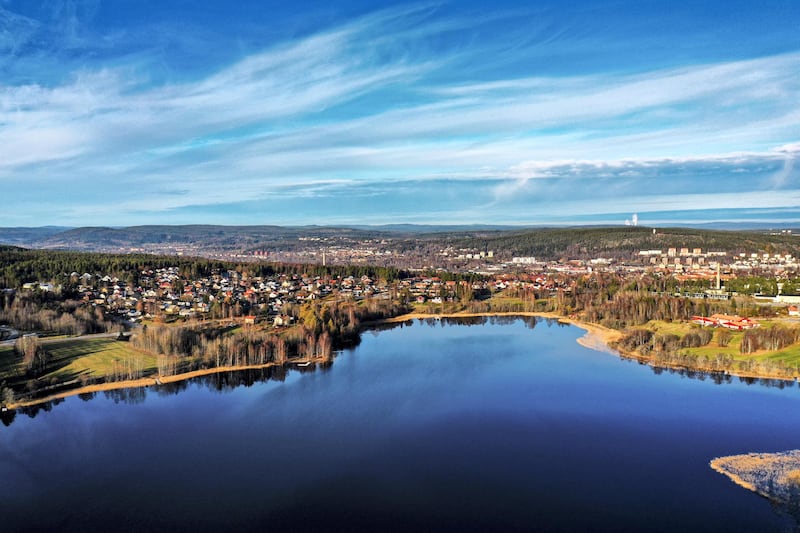
1. Sweden has been named the top country in the world for sustainable tourism. All images courtesy Unsplash

The global pandemic has halted tourism as borders across the world have closed, flights are grounded and demand for international travel has plummeted.
While devastating for the industry in terms of economics, this enforced pause has served to highlight some of the problems with the global model of mass tourism: overcrowded cities, pollution from air travel and environmental degradation, to name a few.
Now, as nations slowly start to reopen, there are calls for a sustainable reboot, with the United Nations World Tourism Organisation asking for a "responsible recovery of the tourism sector".
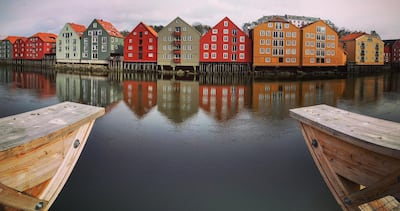
Such a sustainable restart will be easier for some countries than for others. A new report by Euromonitor International details the nations leading the way for sustainable tourism, and those lagging far behind.
These are the top 10 countries for sustainable tourism
6. Slovakia
10. Slovenia
The Sustainable Travel Index by market research company Euromonitor International was designed to help destinations shift to more sustainable and purpose-driven tourism models.
It ranks the top 99 sustainable destinations in the world, having analysed them for seven different factors, including environmental, social and economic sustainability, country risk, sustainable tourism demand, transport and lodgings.

The top 20 leading countries are all in Europe. Sweden was ranked first, followed by Finland and Austria. Just outside the top 20 are New Zealand, Bolivia and Canada, where progress is being made.
"Scandinavia is exemplary in its engagement and awareness of sustainability, where 65 per cent of travel businesses already have implemented a sustainability strategy," stated Euromonitor’s Voice of the Industry: Sustainability Survey in July 2020.
The EU is also driving a strong sustainability agenda through its European Green Deal.
Elsewhere, the UK ranks in 40th position, Jordan is 43rd and the UAE is ranked 53rd, although the Emirates is noted for its improvement. Oman slips in a few paces behind at number 57 and Bahrain is placed at number 70, then Saudi Arabia at number 72.
The list runs to number 99 – a slot that is held by Pakistan.
Why is Sweden the world's most sustainable tourism destination?
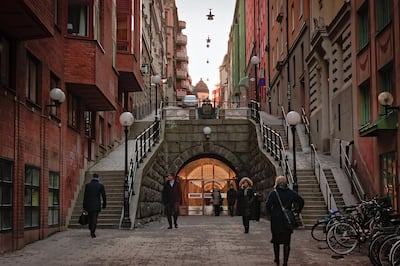
Sweden tops the Sustainable Travel Index in 2020 and proves sustainability can enhance the travel experience. The birthplace of the flygskam (flight shaming) movement and home to climate strike activist, Greta Thunberg, the country is an example for other destinations looking to recover sustainably.
The Scandinavian country also promotes rural and regional tourism in core cities, offers alternative forms of travel besides air and has award-winning Nordic sustainable lodgings.
Sweden is also very involved in green initiatives such as preserving the Arctic ice and permafrost to help stop climate change, and aims to achieve net zero emissions by 2045.
Saudi Arabia ranks first for 'risk', UAE noted for improvement
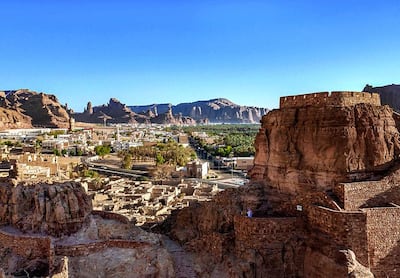
While Saudi Arabia only ranked in 72nd place in the list of the world's most sustainable tourism destinations, it ranked first in the "Risk" category, meaning its risk mitigation strategies are strong in various areas.
Within this, destinations are ranked depending on how susceptible they are "to external risks such as geopolitics, natural disasters, man-made catastrophes and diseases". The risk pillar has three main areas: safety, healthcare and endangered cultural sites and species.
As the report states: "Safety and healthcare go hand in hand for creating a resilient tourism model, and countries must be able to meet the needs of their residents."
The kingdom was particularly commended for its strong record in nature and heritage conservation.
The UAE was also noted for improving its risk ranking. It was the sixth most improved country in 2020.


The No. 1 Sustainable Travel Destination: Sweden
When Euromonitor International ranked 99 countries worldwide on their Sustainable Travel Index in a report in 2020, Sweden came out as the number one country. Sustainable travel refers to a trip where you experience the natural beauty of a country without disturbing the land.
During a sustainable vacation in Sweden, you’ll work to leave the destination just as you found it at the start of your trip. Today we’re going to take a deeper look at why Sweden ranks number one on the Sustainable Travel Index and what you can expect to experience on a sustainable vacation in Sweden.
1. Sustainable Transportation Options
Euromonitor International’s Sustainable Travel Index is created by analyzing seven key pillars of sustainability. In order for Sweden to reach the number one ranking, it had to achieve the lowest score in comparison to the other nations. One of these is sustainable transport options, and Sweden certainly excels in this area. Most people who plan a vacation in Sweden start their adventure in Stockholm, the capital city.
Public transportation in Stockholm achieved its goal of using 100% renewable energy on the metro, trains, and buses in 2017. The city is now working to have fossil-free maritime traffic by 2030. When traveling around Sweden, you’ll find the use of public transportation is highly encouraged, making planning an adventure for a week or two much easier than other sustainable travel destinations you may be considering.
2. Freedom to Roam

The Freedom to Roam is a law in Sweden that offers everyone access to public and private land throughout the country. This could be for recreation or exercise and allows individuals throughout Sweden to explore freely without restrictions. Known as “allemansrätten” in Swedish, this freedom was granted by the Constitution of Sweden in 1994. There is an emphasis, as with all sustainable travel, to not disturb and destroy the land, and this belief is something that’s become ingrained in the culture and considered a human right.
In fact, Visit Sweden even listed their whole country on Airbnb to show just how welcoming they are to everyone. Of course, there are some restrictions in place, such as for fishing, but you’ll find your adventure travel options in Sweden are excellent thanks to this initiative.
3. Sustainable Travel Accommodation Options
One of the other key pillars the Sustainable Travel Index considers is accommodation options for visitors to the country. When looking for an eco-friendly hotel for your vacation in Sweden, you’ll find that your options are simply unlimited.
As well as offering environmentally-friendly accommodation, you’ll find many of these locations give you the chance to immerse yourself in nature for a relaxing vacation in Sweden. The country currently has about 250 hotels which meet the Nordic Eco-label requirements, which mean they meet and exceed a strict set of criteria for sustainable travel.
In Stockholm, you can start your trip in the Elite Hotel Adlon , which is a Green Key certified hotel in the capital city, who work to minimise their energy and water consumption. Two hours outside of Stockholm, you’ll find Kolarbyn Ecolodge , which offers a luxury eco-friendly solution. This site is approved by both the Green Key and Nature’s Best Sweden. Each of their cabins is covered in mud and grass, and there are even mushrooms growing from the roof. With no electricity or showers, you’ll just be able to immerse yourself in the peaceful world around you.
4. Nature’s Best Sweden

Nature’s Best Sweden is the country’s certification for approving ecotourism companies. It works to highlight accommodation and tour options within the country, and offers a select list of companies you can work with during your vacation in Sweden.
Nature’s Best has six main criteria which are used to judge companies on their eco-friendly offerings. It was launched back in 2002 and was Europe’s first ecotourism label, putting Sweden ahead of the game as far as sustainable travel. It is supported by The Swedish Nature & Ecotourism association. They help to educate companies within the country to encourage an increased awareness of sustainable travel solutions.
When it came to judging countries on the Sustainable Travel Index, Sweden was awarded the number one spot in this report, thanks to its excellent scores across the seven categories. With so many great initiatives in place for locals and visitors alike, it’s no surprise this is one of the best sustainable travel destinations in the world today.
Would you like to know more about eco-friendly travel? To receive inspiration direct to your email inbox, please click here and subscribe to the Ecotourism World newsletter!

You May Also Like

Try Authentic Traditional Finnish Sauna

Sustainable Airlines in Europe: Making Air Travel Green

Embark on a Sustainable Spain Trip Experience

Travel Guide
- Things to Do
- What's New
- Health & Insurance
- Entry Requirements & Customs
- Visitor Information
- Getting Around
- Regions in Brief
- Calendar of Events
- Getting There
- Special-Interest Vacations
- Sustainable Travel & Ecotourism
- Escorted & Package Tours
- Tips for Families
- Tips for Gay and Lesbian Travelers
- Tips for Senior Travelers
- Tips for Single Travelers
- Tips for Student Travelers
- Tips for Travelers with Disabilities
- Staying Connected
- Active Pursuits
- Suggested Itineraries
Sustainable Travel & Ecotourism in Sweden
Sustainable tourism is conscientious travel. It means being careful with the environments you explore and respecting the communities you visit. Two overlapping components of sustainable travel are ecotourism and ethical tourism. The International Ecotourism Society (TIES) defines ecotourism as responsible travel to natural areas that conserves the environment and improves the well-being of local people. TIES suggests that ecotourists follow these principles:
- Minimize environmental impact.
- Build environmental and cultural awareness and respect.
- Provide positive experiences for visitors and hosts.
- Provide direct financial benefits for conservation and for local people.
- Raise sensitivity to host countries' political, environmental, and social climates.
- Support international human rights and labor agreements.
You can find some eco-friendly travel tips and statistics, as well as touring companies and associations -- listed by destination under "Travel Choice" -- at the TIES website, www.ecotourism.org . Also check out Ecotravel.com, which lets you search for sustainable touring companies in several categories (water-based, land-based, spiritually oriented, and so on).
While much of the focus of ecotourism is about reducing impacts on the natural environment, ethical tourism concentrates on ways to preserve and enhance local economies and communities, regardless of location. You can embrace ethical tourism by staying at a locally owned hotel or shopping at a store that employs local workers and sells locally produced goods.
Responsible Travel (www.responsibletravel.com) is a great source of sustainable travel ideas; the site is run by a spokesperson for ethical tourism in the travel industry. Sustainable Travel International (www.sustainabletravelinternational.org) promotes ethical tourism practices, and manages an extensive directory of sustainable properties and tour operators around the world.
In the U.K., Tourism Concern (www.tourismconcern.org.uk) works to reduce social and environmental problems connected to tourism. The Association of Independent Tour Operators ( AITO; www.aito.co.uk) is a group of specialist operators leading the field in making holidays sustainable.
Volunteer travel has become popular among those who want to venture beyond the standard group-tour experience to learn languages, interact with locals, and make a positive difference while on vacation. Volunteer travel usually doesn't require special skills -- just a willingness to work hard -- and programs vary in length from a few days to a number of weeks. Some programs provide free housing and food, but many require volunteers to pay for travel expenses, which can add up quickly.
For general info on volunteer travel, visit www.volunteerabroad.org and www.idealist.org .
Before you commit to a volunteer program, it's important to make sure any money you're giving is truly going back to the local community, and that the work you'll be doing will be a good fit for you. Volunteer International (www.volunteerinternational.org) has a helpful list of questions to ask to determine the intentions and the nature of a volunteer program.
It's Easy Being Green
Here are a few simple ways you can help conserve fuel and energy when you travel:
- Each time you take a flight or drive a car, greenhouse gases release into the atmosphere. You can help neutralize this danger to the planet through "carbon offsetting" -- paying someone to invest your money in programs that reduce your greenhouse gas emissions by the same amount you've added. Before buying carbon offset credits, just make sure that you're using a reputable company, one with a proven program that invests in renewable energy. Reliable carbon offset companies include Carbonfund (www.carbonfund.org), TerraPass (www.terrapass.org), and Carbon Neutral (www.carbonneutral.org).
- Whenever possible, choose nonstop flights; they generally require less fuel than indirect flights that stop and take off again. Try to fly during the day -- some scientists estimate that nighttime flights are twice as harmful to the environment. And pack light -- each 15 pounds of luggage on a 5,000-mile flight adds up to 50 pounds of carbon dioxide emitted.
- Where you stay during your travels can have a major environmental impact. To determine the green credentials of a property, ask about trash disposal and recycling, water conservation, and energy use; also question if sustainable materials were used in the construction of the property. The website www.greenhotels.com recommends green-rated member hotels around the world that fulfill the company's stringent environmental requirements. Also consult www.environmentallyfriendlyhotels.com for more green accommodations ratings.
- At hotels, request that your sheets and towels not be changed daily. (Many hotels already have programs like this in place.) Turn off the lights and air-conditioner (or heater) when you leave your room.
- Use public transport where possible -- trains, buses, and even taxis are more energy-efficient forms of transport than driving. Even better is to walk or cycle; you'll produce zero emissions and stay fit and healthy on your travels.
- If renting a car is necessary, ask the rental agent for a hybrid, or rent the most fuel-efficient car available. You'll use less gas and save money at the tank.
- Eat at locally owned and operated restaurants that use produce grown in the area. This contributes to the local economy and cuts down on greenhouse gas emissions by supporting restaurants where the food is not flown or trucked in across long distances.
Note : This information was accurate when it was published, but can change without notice. Please be sure to confirm all rates and details directly with the companies in question before planning your trip.

- All Regions
- Australia & South Pacific
- Caribbean & Atlantic
- Central & South America
- Middle East & Africa
- North America
- Washington, D.C.
- San Francisco
- New York City
- Los Angeles
- Arts & Culture
- Beach & Water Sports
- Local Experiences
- Food & Drink
- Outdoor & Adventure
- National Parks
- Winter Sports
- Travelers with Disabilities
- Family & Kids
- All Slideshows
- Hotel Deals
- Car Rentals
- Flight Alerts
- Credit Cards & Loyalty Points
- Cruise News
- Entry Requirements & Customs
- Car, Bus, Rail News
- Money & Fees
- Health, Insurance, Security
- Packing & Luggage
- -Arthur Frommer Online
- -Passportable
- Road Trip Guides
- Alaska Made Easy
- Great Vacation Ideas in the U.S.A.
- Best of the Caribbean
- Best of Mexico
- Cruise Inspiration
- Best Places to Go 2024
Selected language: English
Byt språk till svenska
- Back to main menu Close Sökfras Search

STF is an organization of committed people, who seek discoveries off the beaten track – in the deep forests and up the tall mountains. Also closer to home, through our network of local chapters. Our aim is for more people to experience adventures up and down the country.
As one of the country’s largest non-profit member organizations, we are deeply rooted in sustainable Swedish tourism. In part, our work is made possible by our 250 accommodations. And our work never ends. What is wonderful about Sweden is that there is always more to discover.
Brief facts – STF
Founded 1885 in uppsala.
From day one, STF has promoted tourism in Sweden by helping people to discover their country.
Has over 206,000 members
STF is a non-profit organization dedicated to sustainable tourism, based on Sweden's natural and cultural heritage.
250 places to stay
STF offers 250 hostels, hotels, guest houses, mountain stations and mountain cabins, from north to south.
Learn more about STF

Contact STF
This is a list of contact information for most of the departments within STF. Use the list to find the best person to help you.

Find answers to the most frequently asked questions.

The STF app
Log into the "STF " app to access your digital membership card. You can also search for and read about all STF accommodation and manage your bookings via a link.
Saying goodbye to a loyal companion can be difficult...
However, to avoid missing out on any of our site’s features, we recommend that you switch to one of the following browsers and turn on automatic updates.

Sweden and sustainability
Lowering emissions is key to saving the climate. find out how sweden does it..
Sweden is known for its undeveloped wilderness and archipelagoes, stretching from the European mainland to the Arctic. Meeting the environmental challenges of the future is not just about protecting landscapes, though, and Sweden is making big strides towards safeguarding the future as well as conserving the past.
An environmental pioneer
The first country in the world to pass an environmental protection act in 1967, Sweden also hosted the first UN conference on the global environment in 1972. Since then, Sweden has not looked back, managing to grow its economy substantially while reducing carbon emissions and limiting pollution. Around 60 per cent of Sweden’s national energy supply comes from renewables, and a thorough legislation aims at further reducing greenhouse gas emissions.
For more than a decade, Sweden has been in the top ten of the globally respected Environmental Performance Index produced by Columbia and Yale universities, with exceptionally clean air and clean water alongside its low emissions.
There is still much to be done, though, and being one of the world’s wealthiest countries increases Sweden’s overall environmental footprint. It might seem an impossible struggle, but previous successes on everything from tackling acid rain to recycling show that environment and development can go hand in hand.
Ambitious goals for sustainability
Climate change caused by the emission of carbon dioxide and other greenhouse gases is one of the foremost global environment problems today. The Swedish government has set ambitious goals for sustainability, including going fossil-free by 2045 and 100 per cent renewable energy.
Statistics Sweden offers a breakdown of emissions of air pollutants in Sweden over time .

A hub for environmental research
The last few decades have seen Sweden become a focus for leading environmental research. Stockholm now boasts the Stockholm Environment Institute and the Stockholm Resilience Centre at the Stockholm University.
Professor Johan Rockström, co-founder of Stockholm Resilience Centre, thinks that Sweden could be a model for other countries to follow.
'Sweden has a disproportionate influence in this field and therefore also a large responsibility,' Rockström has said. 'Sweden, both in science and in action, should be able to show that combining sustainability with human well-being is a path for success and development.'
Related articles
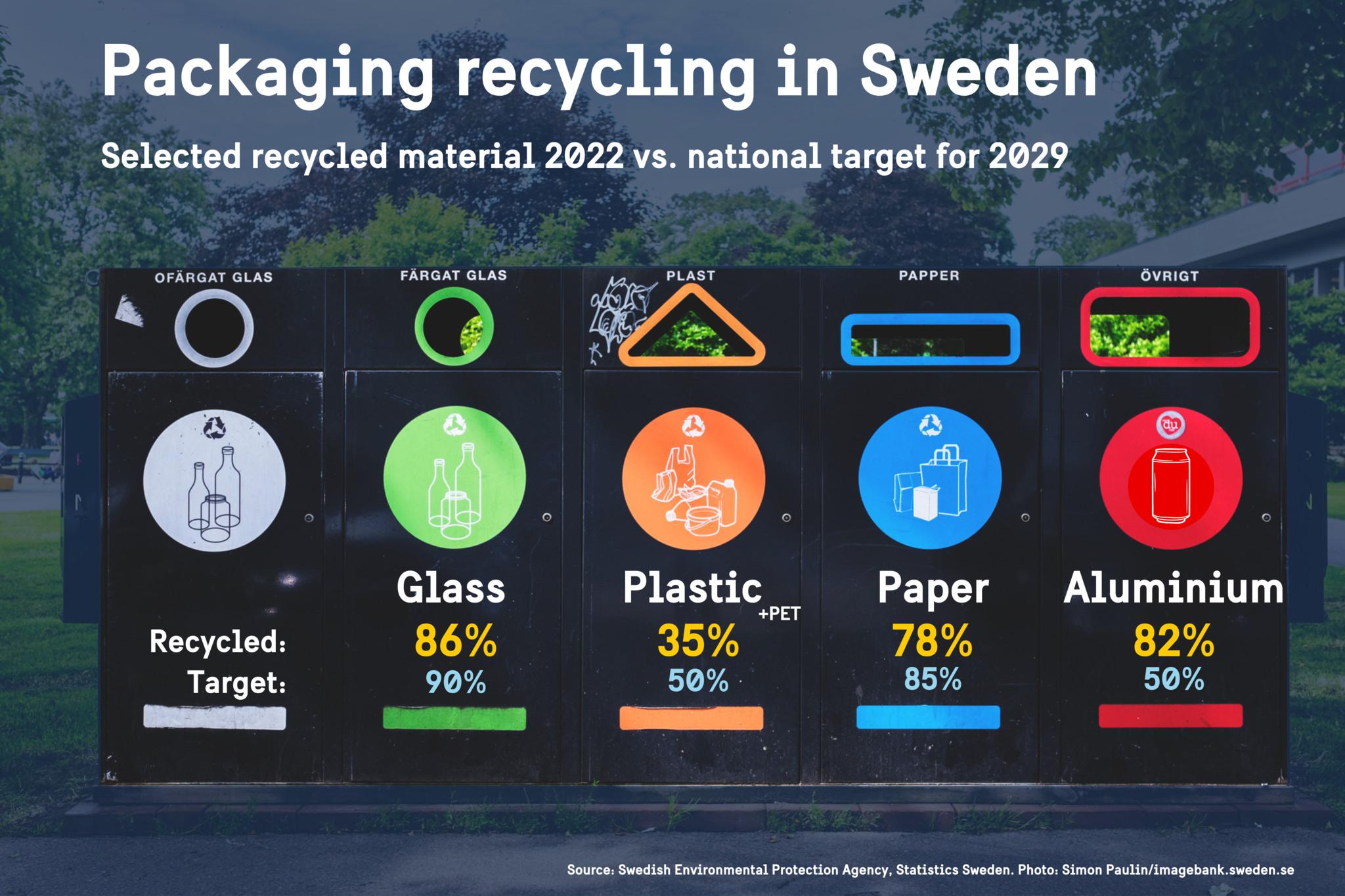
Sustainable housing
On the edge of Stockholm’s urban park, the new ‘eco-quarter’ of Norra Djurgårdsstaden, Stockholm Royal Seaport , is using an old gasworks to build thousands of eco-friendly homes complete with biogas produced from food waste, as well as providing electric car chargers and planning a new tram line. But the real innovation is behind the walls and under the ground.
Swedes use three times as much energy as the global average to combat the cold climate and power their high-tech society, but living in cities is potentially more energy-efficient too. Stockholm Royal Seaport is a test bed for a globally innovative smart energy grid in partnership with energy companies, universities and homebuilders.
Future transport
Urban innovation is making waves in other parts of Sweden too. In Karlshamn in the south, the council now uses electric cargo bikes for some of its deliveries, rather than lorries. It's a solution with two-fold benefits: it's more environmentally friendly and safer for school children and people living in the area.
In Stockholm around 850,000 people use public transport on a normal day. The entire underground system runs on green electricity, and since 2017 all buses have been running on renewable fuels, which was actually the target for 2025.
The city of the future could look a lot like a Swedish city. The real challenge is building these state-of-the-art solutions quickly enough to keep up with the rapid growth of both Sweden’s and Europe’s urban populations.
The green innovation generation
Stina Behrens is a graduate of the Beckmans College of Design in Stockholm. A few years ago, she and her classmates were frustrated about the lack of sustainability in industry, so they set about changing it.
After graduating, Behrens joined the board of Cradle Net , a national multidisciplinary network working to implement and spread information about the circular economy. At the time of writing she was employed by the design agency Transformator as a service designer. Through service design, the agency helps companies change the way they work from traditional to innovative new methods. In the last few years, Transformator and its contemporaries have seen a growing number of major companies interested in sustainability.
‘We see a great amount of potential in helping large companies move towards a circular economy,’ Behrens says. ‘We can help by moving to completely new consumption models. Right now, some really big companies are rethinking how they do business.’
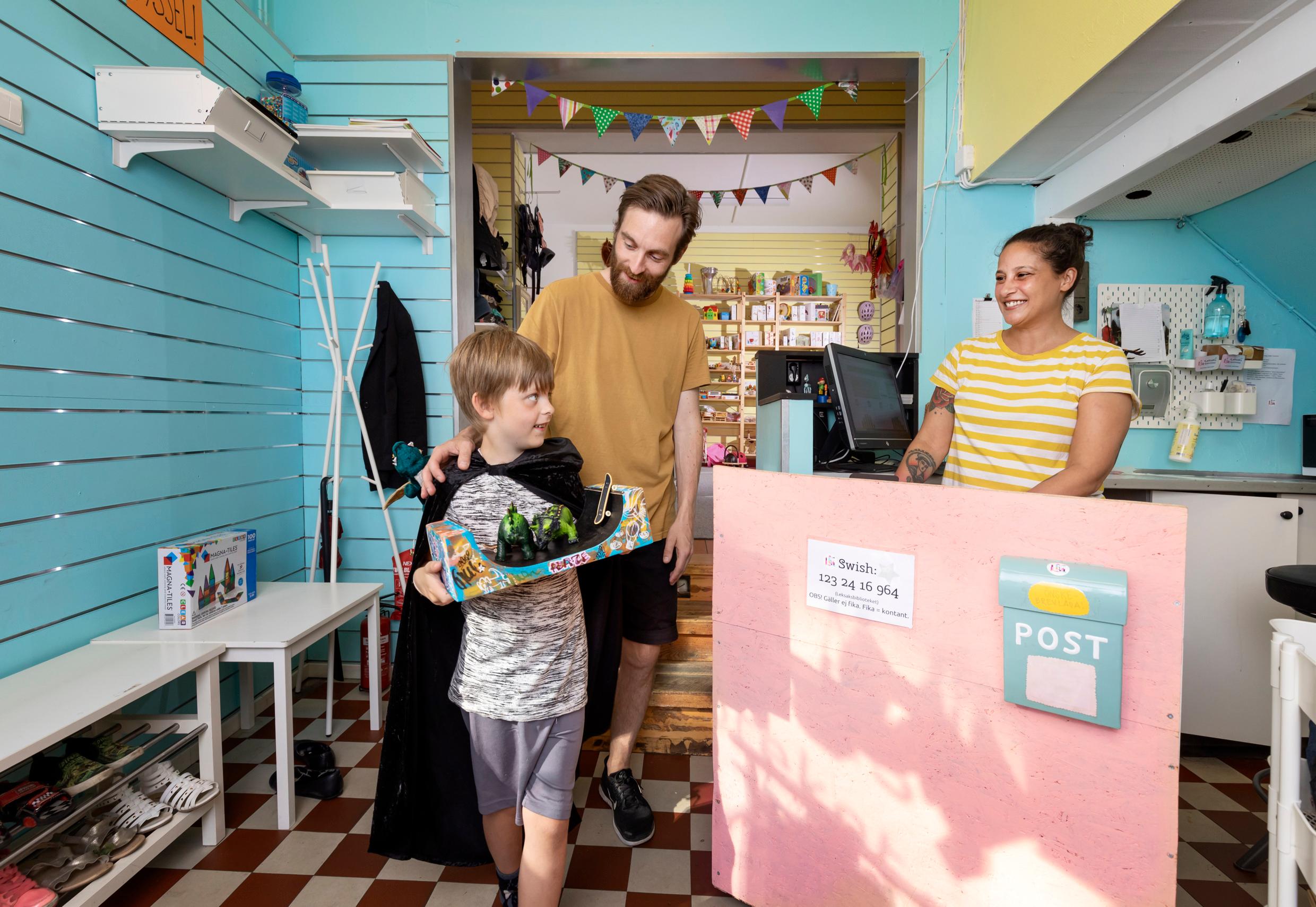
Changing consumer behaviour
This approach focuses on service as much as on the products themselves. If things have to be scrapped they can be recycled, but it is also a question of consumer behaviour; the key to a sustainable economy is changing how people meet their consumer needs. This means that every product has a mapped life cycle, and that customers become users rather than owners. In 2015, the Swedish Government even made the circular economy part of its annual address to parliament.
‘When I came to design, I was very interested in the world around me and in ideas of social sustainability, and that guided me,’ Behrens says.
Several of her classmates are now working in similar roles, and one has started an environmental design consultancy to help green the economy, Beteendelabbet, ‘the behaviour lab’ , changing how people consume products.
Towards a circular economy
Behrens belongs to a generation of young people who have made sustainability their professional work. Swedish universities are now even obliged by law to integrate sustainable development into their curriculum, from literature to finance.
‘This is an area where Sweden can take a leading role in moving to a more sustainable circular economy,’ Behrens says. ‘We’re ready.’

From resource economy to bioeconomy
An important part of Sweden’s economic transition strategy – apart from reducing emissions – is about actively trying to use natural processes to produce energy, industrial products and much else. This so-called bioeconomy involves much more than making things more environmentally friendly – Sweden is pioneering ways to use natural materials that are 100 per cent recyclable and can be part of the ‘cradle-to-grave’ process.
Sweden has a wealth of sustainable natural resources to work with. Already, most of the energy consumed comes from renewables, and its managed forests already provide the main supply of wood products to the EU.
Turning wood into textiles
Sustainable textile fibres are no longer a distant dream. Research projects are turning trees into textile – and old textile into paper .
In the Gothenburg suburb of Mölndal, research institute RISE has a test bed for textile fibre development, where researchers are exploring methods and materials to produce fibres, yarns and nonwoven fabrics from bio-based and synthetic raw materials. In the future we might wear jeans made of Swedish cellulose, activewear made of bioplastics and T-shirts made of recycled fabrics.
TreeToTextile – owned by H&M Group, Inter IKEA Group, Stora Enso and LSCS Invest – is focused on developing the use of cellulose. The company aims to commercialise a new sustainable textile fibre, making it more widely available. Using a new technology, TreeToTextile produces bio-based textile fibres with a low environmental footprint, i.e. wood. In other words, the Swedish forest provides the raw material – the rest is clever technology.
Bioeconomy – a game changer
The challenge is to gain a competitive edge by investing in green technology, by both using domestic resources and developing methods that other countries could use to become more sustainable. According to the Swedish Forest Industries Federation , the country's woodland bioeconomy has an export value of SEK 164 billion billion (EUR 16.4 billion) a year (2021) and is a high-tech industry employing thousands of people.
This bioeconomy is crucial not only to Sweden’s economic future, but also to changing the way the world produces and uses its raw materials.
Swedish environmental milestones
Sweden’s reputation as an environmental pioneer began more than half a century ago. Here are some milestones, past and future.
Sweden was the first country to establish an environmental protection agency, Naturvårdsverket .
Sweden hosted the first UN conference on the environment, which led to the creation of the United Nations Environment Programme (UNEP), the leading global environmental authority to this day.
Sweden was one of the first countries to introduce a carbon tax, which has helped reduce dependency on fossil fuels.
1998 and 2002
Sweden was one of the first nations to sign and ratify the international climate change treaty Kyoto Protocol .
The Stockholm Convention , largely a Swedish initiative, was a global treaty aimed at phasing out the production and use of persistent organic pollutants.
Sweden ranked third in the Global Cleantech Innovation Index .
Sweden ranked second in the Global Innovation Index and topped the Global Sustainable Competitiveness Index .
Sweden ranked second in the UN Sustainable Development Report and the Global Innovation Index , and topped the Global Sustainable Competitiveness Index .
More than 60 per cent of Sweden's electricity comes from renewable sources.
Sweden ranked second in the Global Innovation Index .
Goal: The Swedish transport sector is fossil-free.
Goal: Sweden is fossil-free and, thus, climate-neutral.
Last updated on 23 October 2023
Share with your friends
Other articles you might like
"Sweden is a leader in lifecycle appraisal analysis, which is crucial to understanding the full effect of customer behavior and usage patterns," said Caroline Bremner, head of travel for Euromonitor International.
She emphasized that Sweden protects Arctic ice and permafrost, which help to slow climate change, and that the country is committed to the Sustainable Development Goals .
The Scandinavian country was followed by Finland, Austria, Estonia as well as Norway, based on the recent report released by the independent provider of strategic market research, Euromonitor International, SchengenVisaInfo.com reports.
According to the survey, European countries have been placed in the top 20 places in the Sustainable Travel Index for the 2020s, which takes into account environmental factors and social effects on many countries, among other items.
Related Article: Electricity: Alternative Renewable Sources Beat Fossil Fuels for First Time in History
Determining Factors

The ranking of countries was based on seven main factors of sustainable tourism, according to Euromonitor International :
- Environmental sustainability
- Social sustainability
- Economic sustainability
- Sustainable demand
- Sustainable transport
- Sustainable lodging
Sustainable Travel Index 2020
The top 20 countries on the Sustainable Travel Ranking for 2020 are as follows.
- Switzerland
- Czech Republic
- Netherlands
According to the Sustainable Travel Index, Bolivia, New Zealand, and Canada have also made strides in terms of clean transportation.
The United States was ranked 35th, followed by the United Kingdom (40th), South Africa (46th), and Japan (53rd).
Continued Search
Euromonitor International conducts research and collects data on a broad range of goods and services around the world.
"Travel bans, social sanctions, and emerging health protocols have continued to threaten the travel and tourism industry one year later. According to the firm, the global pandemic revealed vulnerabilities in conventional volume-driven tourism models, which are no longer fit for purpose in the post-pandemic period.
Why is it Being Monitored
According to Euromonitor International, the Sustainable Travel Index was developed to assist travel companies in transitioning to a "more sustainable and purpose-driven model," which will be critical in the future.
The new survey on sustainable tourism showed that 66.4 percent of customers worldwide want to see a positive effect on the climate by their daily activities by 2021.
World Tourism Organization

The World Tourism Organization (UNWTO) also urged a sustainable and healthy regeneration of the tourism industry during a discussion at ITB Berlin Now, a multimedia meeting of the global travel sector that aims to support the travel and tourism market, which is currently facing several challenges due to the Coronavirus pandemic outbreak.
Portugal has also been identified as one of the European countries that supports the European Union Member States' joint efforts to identify ambitious, long-term solutions to revitalize the tourism industry in EU countries.
The Airports Council International Europe (ACI) has previously advised the European Commission to ensure that airports can use the €672.5 billion EU Recovery and Resilience Facility (RRF) to help finance their sustainable strategies.
Over 60 organizations from across Europe have campaigned for tourism to be included in the EU's national recovery and resilience strategies.
ALSO READ: Agrivoltaics: The Answer to Water Demand, Carbon Emissions, and Rural Areas
For more news about sustainability , don't forget to follow Nature World News!
Tags Sweden , sustainable , tourism
© 2024 NatureWorldNews.com All rights reserved. Do not reproduce without permission.

U.S Severe Weather Threats: Isolated Tornadoes, Hail to Continue This Week; Dangerous Travel Possible

Emperor Penguins Face Harsh Reality as Ice Melt Leads to Record Chick Mortality

Shrinking Ozone Holes in Antarctica Threatens Breeding Season of Seals, Penguins Due to UV Exposure
![sustainable tourism sweden Tsunami Hazard Zones: New US Map Shows Places at Risk of Flooding and Tsunamis Amid Rising Sea Levels [NOAA]](https://1471793142.rsc.cdn77.org/data/thumbs/full/70325/280/157/50/40/tsunami-hazard-zones-new-us-map-shows-places-at-risk-of-flooding-and-tsunamis-amid-rising-sea-levels-noaa.jpg)
Tsunami Hazard Zones: New US Map Shows Places at Risk of Flooding and Tsunamis Amid Rising Sea Levels [NOAA]
![sustainable tourism sweden Climate Change is Reducing Dust Levels Worldwide as Arctic Temperature Warms [Study]](https://1471793142.rsc.cdn77.org/data/thumbs/full/70320/280/157/50/40/climate-change-is-reducing-dust-levels-worldwide-as-arctic-temperature-warms-study.jpg)
Climate Change is Reducing Dust Levels Worldwide as Arctic Temperature Warms [Study]
unsustainable
sustainability • ethics • climate • waste • renewables • ecology • poverty • equality
A Sustainable Travel Guide to Stockholm, Sweden
A green travel guide to Stockholm, Sweden’s capital city.
By Anna Timbrook from Expert World Travel
Table of Contents
Introduction: Visiting Stockholm Sustainably
Sweden is the most sustainable country in Europe, and even tourists are expected to stick to certain sustainable practices during their time in the Nordic country. Whether you intend to stay in Stockholm the entire time you’re there, or you plan to visit Malmö , the Arctic Circle, and the Lapland, here are some tips on how to stay sustainable during your travels!

Culture and Language to Keep in Mind
The key thing to remember about Swedish culture is no business talk during Fika (coffee break)! The Swedes take their Fika very seriously, and if you attempt to talk business during this sacred time, you could legitimately insult someone. Also, it’s rude to decline coffee or a Fika invitation in Sweden, so don’t do that if you don’t want to insult anyone.
In terms of language and the things you shouldn’t say while you’re in Stockholm, you should know that Swedes don’t take too kindly to sexist speech and jokes. Sweden ranks first on European Union’s GEI (Gender Equality Index), so it’s best to refer from making any jokes that might be even remotely sexist, even if they are funny.
In addition to that, it’s rude to assume that whoever you’re talking to knows English. Although 80% of Swedes are fluent in English, they might get offended if you just start talking to them in English, especially if you’re not super nice about it. At the very least, say Hej talar du engelska? (Hi, do you speak English?) to start off on the right foot with the Swedes you encounter in your travels.
What To Pack
Your sustainable travel in Stockholm begins when you start packing for the trip. Don’t forget to pack the following items, in order to minimize waste while you’re travelling through the Swedish capital!
Grocery Bags/Shopping Totes
If you’re going to be doing any shopping at all in Swedish supermarkets, bring your own grocery bags. They charge for plastic bags, which helps reduce the total amount of plastic waste in Sweden.
You can bring your own plastic bags, or even better, shopping totes that you can use whenever you’re shopping at the grocery store or a local supermarket.
Food Containers and Utensils
Preparing your own food is much more sustainable than eating out for every meal, plus it will save you a lot of money. Pack a lunch box, a mason jar, and some reusable utensils, preferably metal or bamboo.
This goes hand in hand with shopping at the markets instead of eating out at restaurants, and it will make your travel through Stockholm much cheaper and more enjoyable.
Reusable Water Bottle
Don’t forget to pack a reusable water bottle, so you’ll never have to buy water in a plastic bottle while you’re in Sweden. The country has clean water that’s safe to drink from the tap, so you can always refill your bottle while you are at home.
This sustainable practice is not just great for the environment, but it can save you a lot of money during your travel through Stockholm.
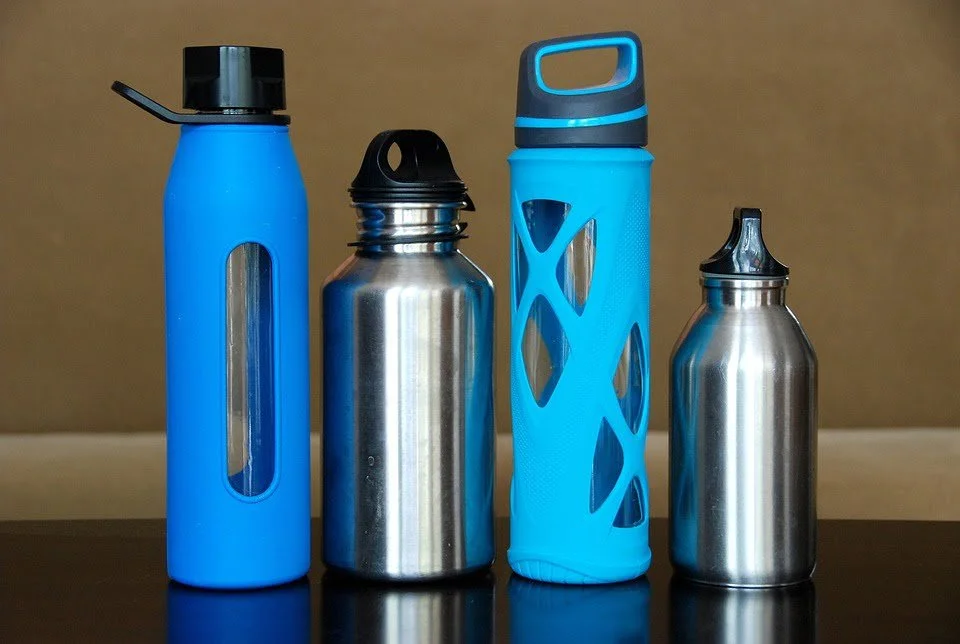
Staying Sustainable in Stockholm
Staying sustainable in Stockholm is easier than you might expect – sustainability isn’t just a word in the Swedish capital. It’s a way of life, and many sustainable practices are deeply ingrained in the Swedish culture.
Here’s what you can do to make your stay in Stockholm as sustainable as possible!
Stay in an Eco-Friendly Hotel
Sweden has quite a few Nordic Eco hotels , and there are loads of them in Stockholm. These are hotels that are already implementing various sustainable practices and technologies, so if you’re trying to be as sustainable as possible, it’s best to stay at one of these hotels.
The good news is that finding a sustainable hotel in Sweden is not a difficult task at all. Ever since 2020, eight out of ten hotels in Stockholm are certified as sustainable.
In practice, this means that the hotels purchase furniture and food only from companies with eco-friendly profiles, or they produce their own, as well as offer fair working conditions to all their employees.
Refer to Nature’s Best Sweden
When you’re not sure if a particular hotel or a tourist agency is sustainable, always refer to Nature’s Best Sweden . The organization offers a detailed list of all the best sustainable companies in Sweden, which includes accommodation options, tourist agencies, campsites, ships, and much more.
Take Advantage of the Freedom to Roam
In Sweden, there’s something called the Freedom to Roam, which is basically the right to camp wherever you want on public property. So, if you decide to venture out of Stockholm and explore the breathtaking nature of this Nordic country, don’t forget your camping gear!
You can set up camp wherever you want in the great outdoors, as long as it’s not private property. Also, it goes without saying that your campsite should have no negative impact on the environment (e.g. don’t set up camp in a field of flowers) and that you should never leave any waste behind.
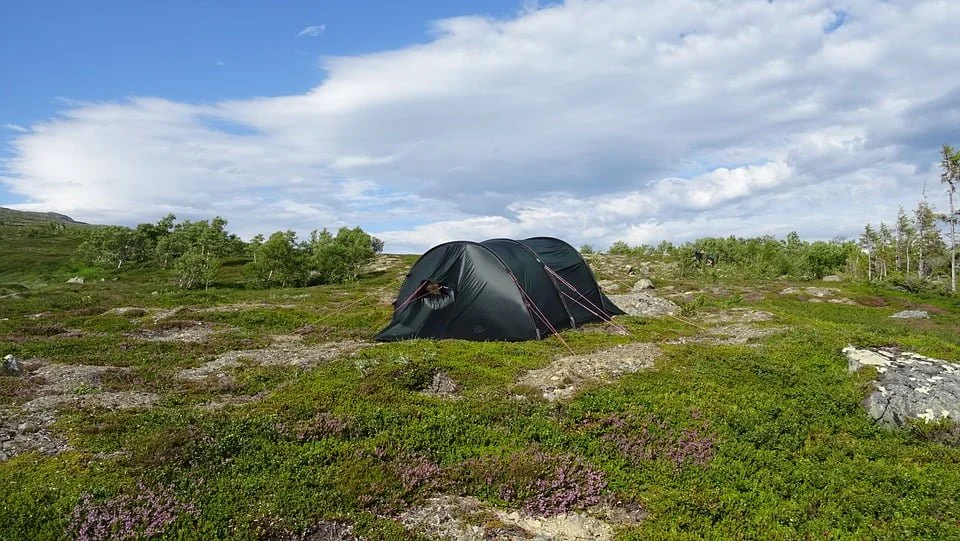
Ride the Public Transport
Stockholm has an excellent network of public transport, which can very much help you explore the city in a sustainable way. The city has countless bus lines, trams, metro lines, and ferries that allow you to sustainably travel wherever you want.
Additionally, it’s worth noting that the buses and trains in Stockholm have used entirely renewable energy since 2017. Sweden aims to make public transport in its capital 100% sustainable, and it’s well underway in achieving it.
They’ve even started to implement electric passenger boats that travel between the main Stockholm harbor and its many little islands.

Alternatively, Ride a Bike
Cycling is very popular in Stockholm and you can ride a bike if you don’t want to rely on just public transport. The city is very bike-friendly, with countless bike lines throughout Stockholm. It’s even possible to travel between some of the city’s bigger islands by bike, which is very convenient.
Stockholm has several bike rental companies that make it super easy for tourists to rent bikes, making it nearly effortless for foreigners to stay sustainable in the Swedish capital.
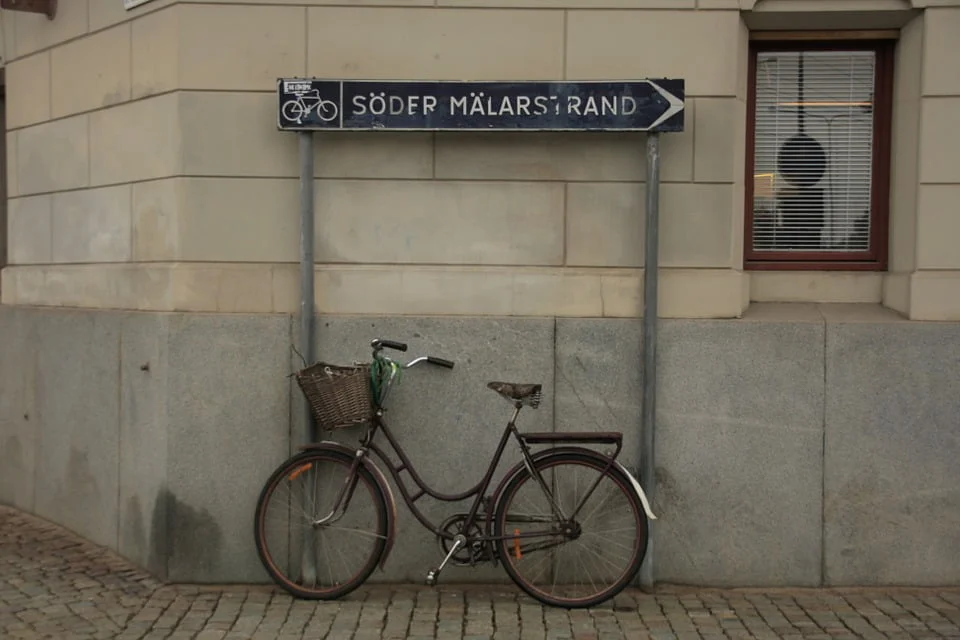
Shop Sustainably
Shopping for sustainable items is the first step towards minimizing waste and reducing your carbon footprint . The first step is always bringing a shopping bag with you to the supermarket, never purchasing plastic water bottles, and trying to buy only the items that are labeled as sustainable or 100% organic!
Skip the Restaurants and Shop at the Local Markets
Avoid restaurants if possible and buy all your food at the local markets. By doing this, you’re not just saving hundreds of dollars on food, but you’re also doing your part to help the local farmers who make their living by selling produce and other goodies at the stalls.
Also, the local markets always offer fresh veggies, pastries, cheeses, and meat, so you’re guaranteed to be getting the best ingredients possible. Don’t forget to bring your shopping tote to the market, so you can avoid carrying all those delicious, fresh veggies in nasty plastic bags.
A bonus tip is to look into some meal prep ideas if you don’t already have your favorites. Overnight oats and mason jar salads require zero skill to prepare, they’re done in a few minutes, and they can be stored in the fridge for several days.

In Supermarkets, Look For The KRAV Label
When shopping at supermarkets in Stockholm, be sure to look for foods that have the KRAV label. The KRAV label is used only on sustainable products, which are produced without artificial pesticides and chemicals, have a minimal climate impact, and are all produced in good working conditions.
Although it’s usually better to avoid supermarkets, the least you can do if you have to shop at one is try to buy only the foods that are guaranteed to be sustainably produced.
Try to Have One Plant-Based Meal a Day
Not everyone is willing to give up meat and dairy entirely, and I’m not here to tell you that you should do that. But, if you want to truly be sustainable in Stockholm, try to have one vegan meal a day. It can be oatmeal with almond milk, a humongous salad, or a very delicious falafel wrap.
Just one plant-based meal a day can reduce your carbon footprint significantly and make your travels through Stockholm more sustainable. In case you can’t fathom not eating meat or dairy every single meal, just look for organic and KRAV-labeled products at the markets and in restaurants.

Look for Sustainable Fashion Brands
If you need to – or want to – purchase clothing or footwear while you are in Stockholm, it’s best to look for the most sustainable brands. Sweden has a lot of excellent brands that produce entirely sustainable items, so opt for those instead of mass-produced fast fashion .
Not only are you supporting these brands that are doing everything in their power to minimize their environmental impact, but you’re also buying garments of much higher quality and durability.
Sustainable Guide to Stockholm Conclusion
Sweden is one of the most sustainable countries in the world , which makes it very easy for tourists to stay sustainable while they’ll exploring it. Stockholm takes the lead in terms of sustainability, with a wide variety of sustainable hotels, electric trains and trams, and a plethora of sustainable items at their shops.
Staying sustainable in Stockholm is simple, as it should be. It’s nothing more than looking for certain labels and buying locally grown produce.
About the Author
Anna was born to travel the world, having studied languages all her life. Although she has traveled the world, she now calls Switzerland home and spends her time writing about her experiences on Expert World Travel . You can follow her on Facebook , Twitter , and Pinterest .
Share this article
Related articles:.
- 10 Tips on How to Enjoy Your Trip to Antarctica
- Sustainable Tourism Norway: Experience the Flora & Fauna
- Your Guide to Sustainable Travel in Vietnam
- Sustainable Travel Guide To The Netherlands
- Why Sustainable Tourism is Important
- Educate Your Kids While Traveling: 5 Simple Techniques
hosted by greengeeks
CONTACT Authors Submissions
In the spirit of reconciliation Unsustainable Magazine acknowledges the Traditional Custodians of country throughout Australia and their connections to land, sea and community. We pay our respect to the Elders past and present and extend that respect to all Aboriginal and Torres Strait Islander peoples today.
© unsustainable 2024

For a sustainable tourism industry in West Sweden
Together we create economically viable businesses and tourism that does not have unnecessary environmental impacts and is appreciated by residents and visitors alike. By joining, you are contributing to a sustainable tourism industry.

As little unnecessary environmental impact as possible

Good for both residents and visitors

More visitors when and where places are not full

More full-time jobs and more resilient businesses
SUSTAINABILITY STEP OF THE YEAR 2023
Winners of Sustainability step of the year 2023
The awards for Stepping up Sustainability 2023 were presented on 9th November at the West Sweden Tourist Board annual conference, held at Biograf Bergakungen in Gothenburg. This year’s winners were Hällsnäs and Restaurant Signum (Tourism Business) and Tanum Municipality/Fjällbacka Quay (Municipal Initiative).

Hällnäs and Restaurant Signum

Tanum Municipality/Fjällbacka Quay
Join stepping up sustainability, some of our connected organizations.

Västergötland
Hotell Bogesund

Stora Hotellet Fjällbacka

What are you looking for?
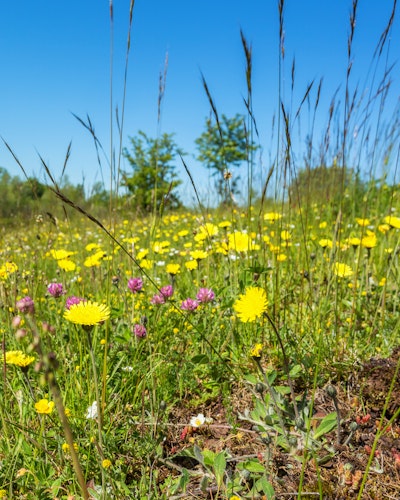
About Nature’s Best
Nature’s best® is ecotourism in practice for responsible companies in nature and cultural tourism as well as for the conscious travelers., what is nature’s best®.
Nature’s Best® is Sweden’s only sustainability label for nature-based experiences. The labeling system labels the activities of ecotourism entrepreneurs. Nature’s Best® functions both as a systematic tool for nature and cultural tourism companies’ sustainable business development and a quality label that makes sustainable experiences visible to conscious travelers. Ecotourism in practice quite simply. With quality-assured consideration for nature conservation, environmental adaptation or local anchoring with care for the destination’s cultural values.
Natures Best quality marks Swedish ecotourism companies with an internal set of standards that since 2023 have been recognized by GSTC, the Global Sustainable Tourism Council’s international criteria for sustainable tourism.

What is ecotourism?
“Ecotourism is responsible travel that helps protect natural environments and supports the well – being of the local population” (World Wide Fund for Nature-WWF 1994) Nature’s Best® six basic criteria reflect the values of ecotourism in practice and each basic criterion in the labeling system consists of a number of underlying criteria that the quality-labeled company meets.
Why Nature’s Best@?
Crucial to the future of tourism is that it develops sustainably. Nature tourism creates the conditions for achieving several sub-goals in Sweden’s continued work with the UN’s global sustainability goals – Agenda 2030. In particular the goals of sustainable consumption and production, to protect ecosystems and biodiversity, and to combat climate change.
Countries and regions create structures and initiatives that promote a development process towards a more sustainable society, where the individual companies participate and take their responsibility through various initiatives. Not sawing off the branch on which nature tourism itself sits will be one of the industry’s major challenges.
When did Nature’s Best start?
In 2002, during the UN’s International Year of Ecotourism, Nature’s Best® was launched, which became one of the first quality labels of ecotourism on earth.
Who stands behind Nature’s Best?
The Swedish Nature & Ecotourism Association ( Naturturismföretagen ).
What does the labeling system consist of?
The labeling system consists of Nature’s Best 6 Basic Principles, Nature’s Best Thematic Criteria, Nature’s Best Destination Analysis, Nature’s Best Environmental Plan.
What ecotourism experiences can the conscious traveler take part in out in the Swedish nature?
Spectacular eco-accommodation, dog sledding, kayaking, canoeing, hunting, fishing, reindeer herding, skiing, bear safaris, Sami experiences, wolf tracking, bird watching, climbing, reindeer sleigh rides, diving, horseback riding, rafting, rafting, archipelago cruises, snowshoeing, snowmobiling, mountaineering hiking in the mountains with hooves or pack horses – let Nature’s Best® show the way to unforgettable nature and cultural experiences delivered by responsible companies. (links to landing pages / collection pages for categories and tags?)

Nature’s Best six principles
1: Respect the limitations of the destination – the least possible wear and tear on nature and culture. Ecotourism is to preserve instead of destroying what the visitor has come to experience. The ecological and cultural viability of each area must be respected. This requires good knowledge of the destination of the organizer, local presence and close cooperation with other actors.
2: Benefit the local economy – Ecotourism is to anchor tourism locally. Nature conservation easily becomes a blow in the air if the people of the area are against it. Being able to benefit from tourism is often a positive driving force. Each event must therefore contribute to the destination’s finances – overnight stays in the locality, local guides and locally purchased goods and services. The more the better.
3: Environmentally adapt the entire business – Ecotourism organizers must be at the forefront when it comes to environmental adaptation. Therefore, approved organizers must actively minimize the environmental impact of travel. Among other things, public transport must be encouraged, accommodation facilities adapted to the environment, waste sorted and environmental fuels given priority.
4: Actively contribute to nature and cultural protection – Ecotourism takes its responsibility for biodiversity and unique cultural values. This means supporting nature conservation in various forms in some active way. The ecotourism organizer collaborates with a living nature and cultural protection opinion. A partnership for mutual benefit.
5: Invest in the joy of discovery, knowledge and respec t – Ecotourism is to travel with a curious and respectful attitude. Approved organizers are skilled hosts and knowledgeable guides, who offer useful introductions, good advice, guidance and valuable tips. Good hospitality and well-communicated knowledge are often the key to memorable travel experiences.
6: Quality and security on the trip – Ecotourism is quality tourism. Marked arrangements must meet and exceed expectations. Safety is taken seriously and satisfied customers are the rule. The outside world must know that an approved ecotourism organizer is a reliable partner.
Nature's Best six basic principles

Respect the limitations of the destination
Ecotourism is to preserve instead of destroying what the visitor has come to experience. The ecological and cultural viability of each area must be respected. This requires good knowledge of the destination of the organizer, local presence and close cooperation with other actors.

Benefit the local economy
Ecotourism is to anchor tourism locally. Nature conservation easily becomes a blow in the air if the people of the area are against it. Being able to benefit from tourism is often a positive driving force. Each event must therefore contribute to the destination's finances - overnight stays in the locality, local guides and locally purchased goods and services. The more the better.

Adapt the entire business for the environment.
Ecotourism organizers must be at the forefront when it comes to environmental adaptation. Therefore, approved organizers must actively minimize the environmental impact of travel. Among other things, public transport must be encouraged, accommodation facilities adapted to the environment, waste sorted and environmental fuels given priority.

Contribute actively
Ecotourism takes its responsibility for biodiversity and unique cultural values. This means supporting nature conservation in various forms in some active way. The ecotourism organizer collaborates with a living nature and cultural protection opinion. A partnership for mutual benefit.

Invest in the joy of discovery
Ecotourism is to travel with a curious and respectful attitude. Approved organizers are skilled hosts and knowledgeable guides, who offer useful introductions, good advice, guidance and valuable tips. Good hospitality and well-communicated knowledge are often the key to memorable travel experiences.

Quality and security on the trip
Ecotourism is quality tourism. Marked arrangements must meet and exceed expectations. Safety is taken seriously and satisfied customers are the rule. The outside world must know that an approved ecotourism organizer is a reliable partner.
- Trend Reports
- Newsletters

Sweden ranked best country in the world for sustainable tourism
Scandinavia is renowned for its progressive attitudes so it’s no surprise that sweden is leading the drive for sustainable travel. olivia palamountain reports.
Sustainability is at the “forefront of global conscience”, says the Top Countries for Sustainable Tourism report released by global market research company Euromonitor International, with 66.4 per cent of international consumers wanting to have a positive impact on the environment through their daily actions in 2021.
The new report forms part of the Sustainable Travel Index , which assessed 99 destinations in 2020 through the lens of environmental, social and economic sustainability, sustainable tourism demand, transport and lodging, and country risk (in terms of geopolitics, natural disasters, man-made catastrophes and diseases ).
In breaking down attitudes and achievements by region, the report finds that Scandinavia is leading by example in its engagement and progress towards sustainable travel, with Sweden ranked first, followed by Finland, Austria, Estonia and Norway.
Top 20 destinations for sustainable tourism in 2020
- Switzerland
- Czech Republic
- Netherlands
“Sweden is a pioneer in lifecycle assessment research which is critical to understand the full impact of consumer behaviour and consumption patterns,” says Caroline Bremner, head of travel at Euromonitor International.

The Euromonitor report states: “Sweden is the birthplace of the flygskam (flight shaming) movement and home to climate strike activist, Greta Thunberg. Focused on devising a sustainable tourism strategy, Sweden is working to promote rural and regional tourism in core cities.
“The country also benefits from efficient transport infrastructure and alternative forms of travel besides air to help appease flight-shaming. For sustainable lodging, Sweden serves as a role model with its award-winning Nordic eco-chic architecture and design.”
In 1995, Sweden became one of the first countries in the world to initiate a carbon tax placed on carbon-intensive fuels such as oil and natural gas, something that cut down Sweden’s dependency on fossil fuels enormously.
The country is also highly engaged with the Sustainable Development Goals and preserves its Arctic ice and permafrost to help stop climate change, aiming to achieve net zero emissions by 2045.
Germany and France also show good progress in sustainable transport and lodging, as do the likes of New Zealand, Bolivia and Canada.
“There is globally a clear change in mindset and resistance in returning to a volume-driven travel and tourism model. Instead, stakeholders are rallying together to ‘build back better’ through value creation from sustainable tourism.
“As momentum grows in the run up to COP26, consumers, travel brands, destination marketing organisations and governments continue to align to avert the climate emergency,” says Bremner.
Top ten countries for environmental sustainability in 2020
One of many major challenges for the travel industry is making its consumption of resources, such as water, sustainable. The report states: “ Tourism is a heavy user of precious resources such as water for bathrooms, pools, golf courses and spas, leading to water supply and management challenges that can lead to conflict with local communities over resources. ”
What’s coming next? Trend reports available to download HERE
- Click to share on WhatsApp (Opens in new window)
- Click to share on Telegram (Opens in new window)
- Click to share on Pocket (Opens in new window)
- Click to share on LinkedIn (Opens in new window)
- Click to share on Twitter (Opens in new window)
- Click to share on Facebook (Opens in new window)
- Click to print (Opens in new window)
We have updated our terms and conditions and privacy policy Click "Continue" to accept and continue with ET TravelWorld
We use cookies to ensure best experience for you
We use cookies and other tracking technologies to improve your browsing experience on our site, show personalize content and targeted ads, analyze site traffic, and understand where our audience is coming from. You can also read our privacy policy , We use cookies to ensure the best experience for you on our website.
By choosing I accept, or by continuing being on the website, you consent to our use of Cookies and Terms & Conditions .
- Leaders Speak
- Brand Solutions
- How Sweden makes tourists responsible
Ruth Dolla, Official Spokesperson, Visit Sweden, talks to ETTravelWorld about how sustainability is a part of the Swedish lifestyle and is reflected in every aspect that a tourist experiences - food, stay, culture and local travel
- Peden Doma Bhutia ,
- ETTravelWorld
- Updated On Nov 5, 2020 at 10:02 AM IST
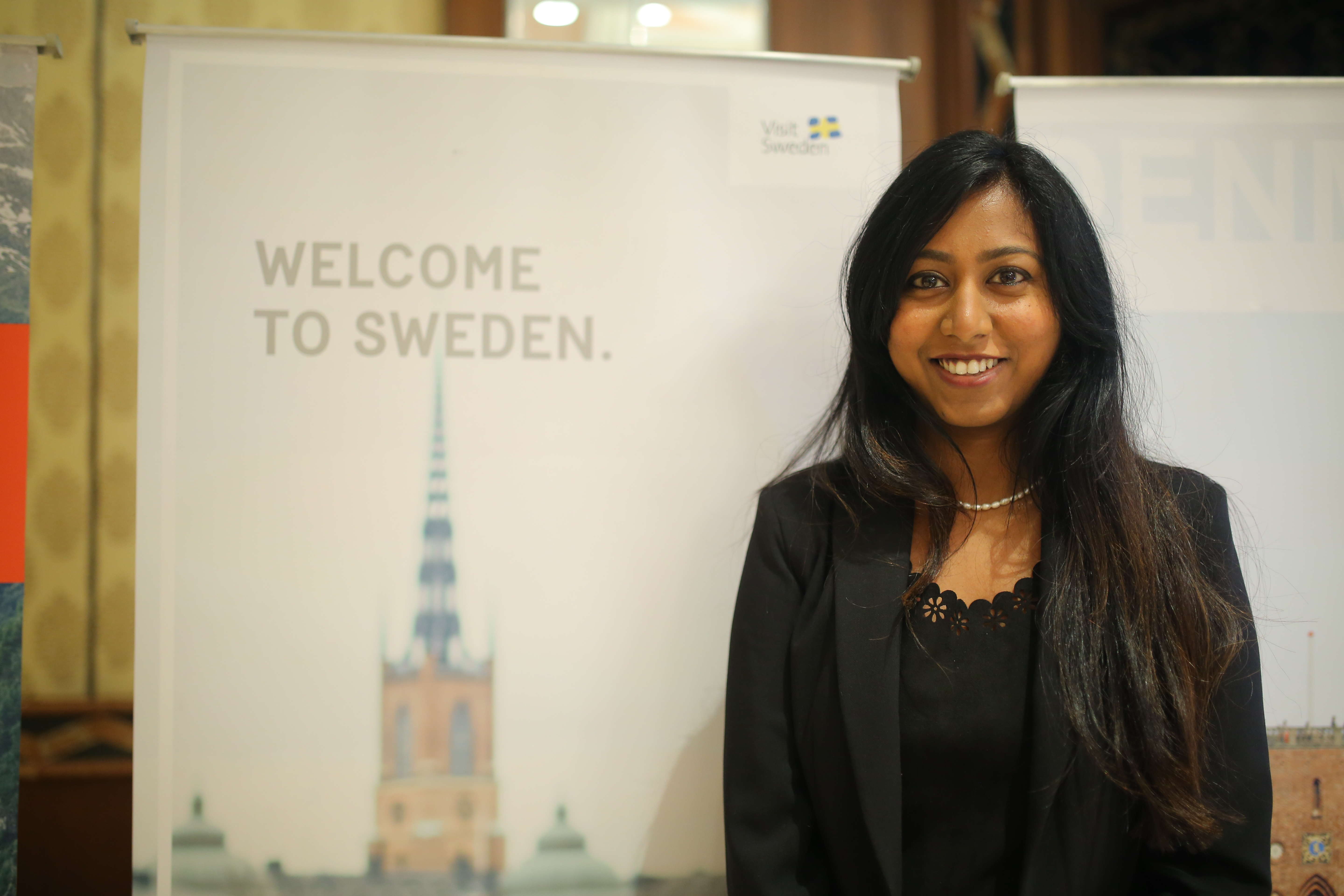
- By Peden Doma Bhutia ,
- Published On Nov 5, 2020 at 08:57 AM IST
All Comments
By commenting, you agree to the Prohibited Content Policy
Find this Comment Offensive?
- Foul Language
- Inciting hatred against a certain community
- Out of Context / Spam
Join the community of 2M+ industry professionals
Subscribe to our newsletter to get latest insights & analysis., download ettravelworld app.
- Get Realtime updates
- Save your favourite articles
- sustainable tourism
- sustainable experiences
- visit sweden
- svensk turism
- Stockholm Arlanda Airport
- Experience Guide (sv, dk, no, eng)
- Corporate (in Swedish)
- Press & Media
- Travel Trade
- Where to stay
Unique accommodation close to nature – 29 sustainable places to stay in Sweden
From rustic eco-lodges and historic cabins to floating hotels and modern glamping – the Swedish forest is scattered with unique places to stay.
Discover the luxury of going off-grid and enjoy the sound of silence while leaving as few footprints as possible.
Maps require approval for third-party cookies (Targeting) from Google. Modify cookie settings by clicking the icon at the bottom left. Click "Show map once", to accept Google's terms once.
All accommodations are listed from north to south. Click to go directly to:
Northern sweden, middle sweden, southern sweden.
Sápmi Nature Camp, Swedish Lapland.
Experience the indigenous Sámi culture at Sápmi Nature Camp, approved by Nature's Best.
Photo : Lennart Pittja/Sápmi Nature/imagebank.sweden.se
Sápmi Nature Camp, Swedish Lapland
Photo : Lennart Pittja/Sápmi Nature/imagesbank.sweden.se
Geunja The Sámi Eco Lodge
Photo : Swedish Lapland
Arctic Retreat, Swedish Lapland
Photo : Graeme Richardson/Arctic Retreat
Huuva Hideaway, a part of The Edible Country
Photo : Swedish Lapland/imagebank.sweden.se
Huuva Hideaway
Photo : Tina Stafrén/imagebank.sweden.se
Swedish Lapland
Nature’s Best is Sweden’s only sustainable label for nature-based experiences. In short, it’s ecotourism for responsible companies working with nature and cultural tourism, and for conscious travellers. Many of the approved accommodation providers can be found in northern Sweden, including the following three:
Sample glamping with a twist at Sápmi Nature Camp . At this eco-lodge, situated in the UNESCO World Heritage Site of Laponia, you’ll sleep in a ‘lavvu’ (a small tepee-like tent) and learn about the Sámi way of life as well as the history of reindeer herding from families who have grown up here.
Similarly, the Vinka family, who has lived in the area for centuries, has welcomed guests to the secluded Geunja The Sámi Eco Lodge for decades. Located beyond Ammarnäs, literally at the end of the road, they only take in a maximum of 12 groups a year, and those who stay here can immerse themselves in Sámi culture, food and traditions.
At the eco-lodge Arctic Retreat , you’ll stay in log timber cabins with private jacuzzies next to Sweden’s largest forest river, the Råne River. Various activities linked to the river and adapted to the seasons are offered – from kayaking and fishing in the summer to skiing and husky tours in the winter.
Huuva Hideaway is not a member of Nature’s Best but has a sustainable philosophy and strives to leave as few footprints as possible. The concept combines Sámi history with an arctic lifestyle, and you’ll stay in a cabin on land or on the Liehittäjä Lake. Huuva Hideaway also offer wild dining as a part of The Edible Country . Fun fact: Liehittäjä is old Finnish for ‘Seductive’, and a small village with 10 inhabitants and 22 saunas.
Granö Beckasin, Västerbotten
Granö Beckasin is situated in the middle of nature by the beautiful Umeå River and offers birds' nests, cabins, a campsite and an eco-hotel.
Photo : Bea Holmberg/Granö Beckasin
Photo : Bea Holmberg/Visit Sweden
Västerbotten
Västerbotten County has developed its own quality label for companies working together for sustainable nature and culture experiences in the region. The initiative is called Västerbotten Experience and gathers several accommodations, including Granö Beckasin and Svansele Wilderness Center.
Granö Beckasin is most known for its luxurious birds’ nests, where you stay up in the trees, overlooking the Umeå River. But the property also offers cabins, a campsite and an eco-hotel that is fully recyclable. A range of nature activities are available, and multi-day excursions such as rafting and a Lapland Triathlon for those feeling adventurous. Granö Beckasin also has a restaurant that is KRAV-certified.
Svansele Wilderness Center , on the other hand, serves up a range of accommodations where the wilderness camp is the largest and most unique. Located in the middle of a pine forest, with no electricity or running water and 100 torches as the only light source when night falls, this is an authentic wilderness experience. Svansele Wilderness Center has invested in electrical snowmobiles, aiming to become self-sufficient.
Copperhill Mountain Lodge
Winter view of Copperhill Mountain Lodge in Åre, Jämtland.
Photo : Copperhill Mountain Lodge
Copperhill Mountain Lodge Spa, Åre
Fjällnäs, Jämtland
Photo : Peter Rutherhagen
Varghotellet, Järvsö
Photo : Vildriket
For those looking for a sense of adventure in combination with a relaxing spa, Jämtland is hard to beat. Åre is the largest ski resort in Sweden and Copperhill Mountain Lodge , located right at the tree line, is a jewel. Mainly built from wood and with panoramic spa windows, this hotel offers majestic views year-round. Copperhill Mountain Lodge holds an ISO 14001 certificate, and for those who wish to make their stay even more sustainable, a Travel Green package is available during summer and autumn.
Even though it’s the oldest mountain hotel in Sweden, Fjällnäs works with the most modern technology to minimise the use of resources. The hotel, with its traditional wooden buildings, has welcomed guests since 1882 – while the surrounding nature has been untouched since the last ice age. Here, 10 kilometres from Tänndalen, you live in symbiosis with nature and its eight unique seasons. If you want to be pampered, visit the spa, ‘Mii Gullo’ (meaning ‘How are you?’ in Sámi).
Hälsingland
Vildriket Park in Järvsö has been working to preserve biodiversity and make the Nordics a wilder place for over 30 years. For a truly unique experience, stay a night in the midst of wolves at Varghotellet (The Wolf Hotel). The hotel has five rooms directly overlooking the wolves' enclosure. Here, you'll fall asleep to their howls and may find yourself almost face-to-face with them as soon as you wake up.
Wålstedts Gård, Dalarna
Enjoy the cosy cottage surrounded by greenery at the eco-farm Wålstedts Gård in Dalarna.
Photo : Wålstedts Gård
Happie Camp, Värmland
Photo : Happie Camp
Naturbyn, Värmland
Photo : Jenny Nohrén
Photo : Naturbyn
Raft adventure on Klarälven, Värmland
Photo : John van Halvert
Experience an authentic close-to-nature stay in a historic pasture cottage in the forests of Dala-Floda at Wålstedts Gård . Upon arrival at this family-run and KRAV-certified eco-farm, you’ll receive directions and a packed lunch to enjoy during the 4-kilometre-long hike to the pasture cottage. The cottage is in a forest glade, and the earth cellar is filled with homemade food you can cook over an open fire.
For those who prefer glamping, Happie Camp can be a new experience. You won’t know exactly where you’ll stay until the last minute when the organisers send you the coordinates to find your comfortable tent. The three current camps – Lake Vänern, Hagfors and Arvika – emphasise eco-friendly relaxation far from city noise. Plant-based food boxes with organic produce are available, and each camp has an outdoor kitchen.
Hidden among the trees on the shores of Lake Eldan, Naturbyn (‘The Nature Village’) offers hand-built log cabins, cottages, treehouses and even wooden houseboats. Ideal for a complete detox, this is an off-grid resort with the sights and sounds of nature providing entertainment. Relax in the wood-fired sauna before taking a dip in the lake. Or join a fishing trip and cook your catch on one of the open fires dotted around the camp.
If you’re looking for a wilderness adventure and accommodation unlike anything else, Nature’s Best certified Vildmark i Värmland might be something for you. On the shores of Klarälven River, you start by building your raft before embarking on a 1-8 days long journey on the water. The rafting adventure is inspired by the life of old-time log drivers, and you can choose to spend the nights on board your raft or in tents or cabins along the river.
Kolarbyn Eco Lodge, Västmanland
Kolarbyn Eco Lodge is sometimes referred to as Sweden's most primitive hotel.
Photo : Mikaela Larm
Photo : Per Groth
Lindeborgs Eco Retreat, Nyköping
Photo : Jenna Peffley/Lindeborgs Eco Retreat
Västmanland
At Kolarbyn Eco Lodge outside Skinskatteberg, guests stay in rustic grass-covered huts reminiscent of real-life hobbit holes. The twelve charcoal huts have no electricity, no showers, nothing fancy at all – Kolarbyn Eco Lodge takes pride in being called Sweden’s most primitive hotel. Kolarbyn is a Nature’s Best certified company and offers, apart from accommodation, an array of adventures. Why not take a bushcraft and survival course?
Lindeborgs Eco Retreat , located by the end of the road outside Nyköping, is beyond sustainable. Here, you’ll stay in a hundred-year-old barn, surrounded by natural materials and sleeping in organic beds, overlooking the nearby lake, sheep pastures and vegetable gardens. There is also an on-site sauna and relaxation area made with recycled tiles. Thanks to the farm’s innovative and thriving ecosystem, staying at the Eco Barn is directly climate-positive and reduces your carbon footprint.
Swedish Country Living, Dalsland
Enjoy the serenity of Dalsland’s nature while staying at Swedish Country Living. The cabins have no electricity or running water.
Photo : Swedish Country Living
Salt & Sill, West Sweden
Photo : Tony Meyer/Westsweden.com
Anfasteröd Gårdsvik, West Sweden
Photo : Viggo Lundberg
Inforest, West Sweden
Photo : Inforest
West Sweden
West Sweden – gathering the provinces of Bohuslän, Dalsland and Västergötland – has created ‘Hållbarhetsklivet’ (Stepping up Sustainability), a joint initiative for a sustainable tourism industry. Many accommodation companies have joined, including the following four:
In Köpmannebro, the KRAV-certified farm Swedish Country Living offers several types of accommodation overlooking a lake on the forest's edge. The off-grid wooden hermitage cottages with Scandinavian interiors are the most petite, perfect for a tranquil back-to-nature break. In 2021, Swedish Country Living was awarded Sweden’s Best Sustainability Experience by the 360° Eat Guide.
Salt & Sill (meaning Salt & Herring) on the islet Klädesholmen is for those who prefer the coast over the forest. This modern, internationally acclaimed design hotel was Sweden’s first floating hotel. The location on the water is not just a perk for bath-loving guests; Salt & Sill uses the ocean’s underwater currents as the basis for the hotel’s energy needs. Salt & Sill also features a renowned restaurant serving fresh seafood and specialising in – you’ve guessed it – herring.
Can’t choose between the sea and the woods? Family-run Anfasteröd Gårdsvik nestles on a forest-clad slope overlooking the Bohuslän archipelago. Here, you can check in for a glamping experience in furnished safari tents with heating or stay in one of the carefully renovated historical buildings. Anfasteröd has been a holiday destination for over a hundred years, and the owners are firm in not taking in more guests than the area can sustain.
For a close-to-nature experience without neighbours, stay off-grid in a tiny house with minimal climate impact in the deep forests outside Hjo. Inforest offers four hand-built and self-sufficient cabins with large windows that reinforce the feeling of being in the middle of the woods. Guests are recommended to stay four to seven nights to unwind and enjoy nature to the fullest.
Urnatur, Östergötland
At Urnatur, you live off-grid and in harmony with nature.
Photo : Ulrika Krynitz
Photo : Krautkopf/Urnatur
Naturlogi, Östergötland
Photo : Naturlogi
Surflogiet, Gotland
Photo : Surflogiet
Stora Karlsö, Gotland
Photo : Stora Karlsö
Östergötland
The southeast part of Sweden offers many eco-lodges, too. In the Wood hermitage part of Urnatur , guests live off-grid in harmony with nature. The forest cottages and treehouses – with names like The Moss Temple and The Air Castle – lie 500 metres from the organic farm and are all unique, built of timber from storms that hit Sweden in the 2000s. Urnatur works with nature conservation, and one of the farm’s sustainable goals is to be self-sufficient in vegetables from 1 July every year.
In the region, you can also find Naturlogi , offering a variety of forest rooms – from a rustic windbreak with only a mosquito net between you and the surrounding nature to suites with private hot tubs. All accommodations have a fireplace, and guests cook sustainably produced food, provided in a basket, over the fire. Naturlogi has made a sustainability pledge and operates within the forest’s capacity, with only a few guests per night.
Sweden’s largest island, Gotland, has gathered many local companies under the initiative Sustainable Plejs. The idea is to work locally and organically to make the region a living and sustainable place year-round. One member of Sustainable Plejs is Surflogiet , which offers glamping experiences in tents with luxurious beds on the beach. A stay here can be combined with a surfing course, yoga on the beach or a few relaxing hours in the sauna.
Stora Karlsö , an island just outside of Gotland, is also a Sustainable Plejs and Nature’s Best member. This nature reserve is renowned for its abundant bird life and is run by an animal protection association. Stay in the old lighthouse on a cliff with sunset views or in a beach house with direct access to the bathing jetty.
Stedsans in the Woods
Cabin accommodation at Stedsans in the Woods, located at Hyltebruk in Halland.
Photo : Stine Christiansen
Photo : Martin Edström/Visit Sweden
Ästad Vingård, Halland
Photo : Kristian Sahlberg
Ramoa Adventure Village, Småland
Photo : Ramoa/Smålands Turism
Getnö Gård, Småland
Photo : Ingrid E-M Olsson
Back in the southwest, Stedsans in the Woods in Halland believes that luxury, true sustainability and well-being go hand in hand. This off-grid forest resort offers 16 wooden cabins with floor-to-ceiling windows, a floating sauna and a secluded restaurant serving local, foraged and home-grown produce. The cabins have a strict less-is-more philosophy, and the whole site is described as a ‘playground and laboratory for an alternative lifestyle’.
Further towards the coast, tucked away in a beech forest in a nature reserve, you’ll find one of Sweden’s most prominent vineyards. Ästad Vingård is a Nordic Eco-labelled destination, and its restaurant Äng is KRAV-certified and holds a Michelin star. As for accommodation, Ästad Vingård offers a range from rustic timber cottages to luxurious suites with private saunas.
The province of Småland, with its vast forests, offers several options for a stay in nature. One is Ramoa Adventure Village , where the accommodation is an experience. Choose between various cottages and tents, a floating bedroom only accessible with a kayak or the crown jewel – a pavilion on a private island in the middle of Lake Örken. Ramoa works with local suppliers and encourages the guests to share their responsibility for the environment.
Another gem is Getnö Gård , a farm located in Åsnen National Park. Choose between nature camping, secluded houses and summer cottages. Getnö is the natural waterway into the national park and Lake Åsnen, boasting 1,000 islands. The area dates to the Viking Age, and if you’re looking for stripped-down accommodation, the rustic timber cabin ‘Vikingaborgen’ by the lake is a safe bet.
Eriksberg Hotel & Nature Reserve
Eriksberg Hotel & Nature Reserve in the Blekinge archipelago offers a variety of accommodations – from a hotel to cabins and glamping tents.
Photo : Eriksberg
Photo : Angelica Zander
Nyrups Naturhotell, Skåne
Photo : Apelöga/imagebank.sweden.se
Situated in the Blekinge archipelago, Eriksberg Hotel & Nature Reserve lets you experience wildlife on the animal’s terms. The accommodation alternatives are luxurious and many – how about glamping in an architect-designed tent in the middle of the enclosed nature reserve or spending the night in the Illusion Villa, hovering three metres above a feeding place with a glass slab in the floor? As one of the largest game reserves in northern Europe, Eriksberg promotes biodiversity and ensures the well-being of the animals.
Nyrups Naturhotell , in the southernmost part of Sweden, is only available via a hike into the forest. Here, you’ll stay in comfortable and colourful huts. However, this is not a luxurious glamping experience – Nyrups Naturhotell is an ecohotel with no electricity or running water. No equipment or experience is required, but the guests are wholly involved in the stay to co-create the experience together, with the mission to leave a minimal footprint.
Related articles
12 concrete tips for travelling responsibly, tree hotels in sweden – the most unusual places you ever stayed, 9 extraordinary accommodations close to swedish nature, discover sweden's best campsites 2024.

- GSTC Mission & Impacts
- GSTC History
- Market Access Program
- GSTC Board of Directors
- Assurance Panel
- Working Groups
- GSTC Sponsors
- GSTC Members
- Recruitment
- Contact GSTC
- GSTC For the Press
- Criteria Development, Feedback & Revisions
- Sustainable Tourism Glossary
- SDGs and GSTC Criteria
- GSTC Industry Criteria
- GSTC Destination Criteria
- GSTC MICE Criteria
- Criteria Translations
- GSTC-Recognized Standards for Hotels
- GSTC-Recognized Standards for Tour Operators
- GSTC-Recognized Standards for Destinations
- Recognition of Standards (for Standard Owners)
- GSTC-Committed
- Certification for Hotels
- Certification for Tour Operator
- Certification for Destination
- Accreditation for Certification Bodies
- Accredited Certification Bodies
- Stakeholder Consultations
- What is Certification? Accreditation? Recognition?
- Sustainable Tourism Training Program (STTP)
- Upcoming Courses
- Professional Certificate in Sustainable Tourism
- Professional Certificate in Sustainable Business Travel
- GSTC Trainers and Partners
- FAQs: GSTC Training Program
- Organization Membership Application
- Destination Membership Application
- Membership Policy
- Membership Categories & Fees
- Membership Payment Options
- Webinars for GSTC Members
- Members Log In
- Upcoming Webinars
- GSTC2024 Sweden, Apr 23-26
- GSTC2024 Singapore, Nov 13-16
- Past Conferences
- Destination Stewardship Report
GSTC2024 Sweden Global Sustainable Tourism Conference
Purposeful travel #gstc2024.
The GSTC2024 Global Sustainable Tourism Conference will take place in Stockholm, Sweden, from April 23rd to April 26th, 2024. The event aims to unite global and local tourism professionals engaged in advancing and advocating for sustainable travel and tourism. This includes participants from the public sector, hotels, tour operators, corporates, online travel agencies, academic institutions, development organizations, non-governmental organizations, consultants, and a variety of other stakeholders.
Environment
Climate and smart management
Welcoming and inclusive
Thriving and innovative
Credible Assurance

Monday, April 22 nd Optional pre-conference trainings (Day 1)
Tuesday, April 23 rd Optional pre-conference trainings (Day 2) Academic Symposium (Registration needed) Welcome Reception Dinner (for all participants) at the Stockholm City Hall sponsored and hosted by the City of Stockholm.
Wednesday, April 24 th Conference – Day 1 (including lunch) at Cirkus and Hasselbacken
Thursday, April 25 th Conference – Day 2 (including lunch) at Museum of Technology , Maritime Museum , Museum of Ethnography Farewell dinner (for all participants) at the Vasa Museum
Friday, April 26 th Complimentary tour(s) – see options here
Full program
What will it look like.
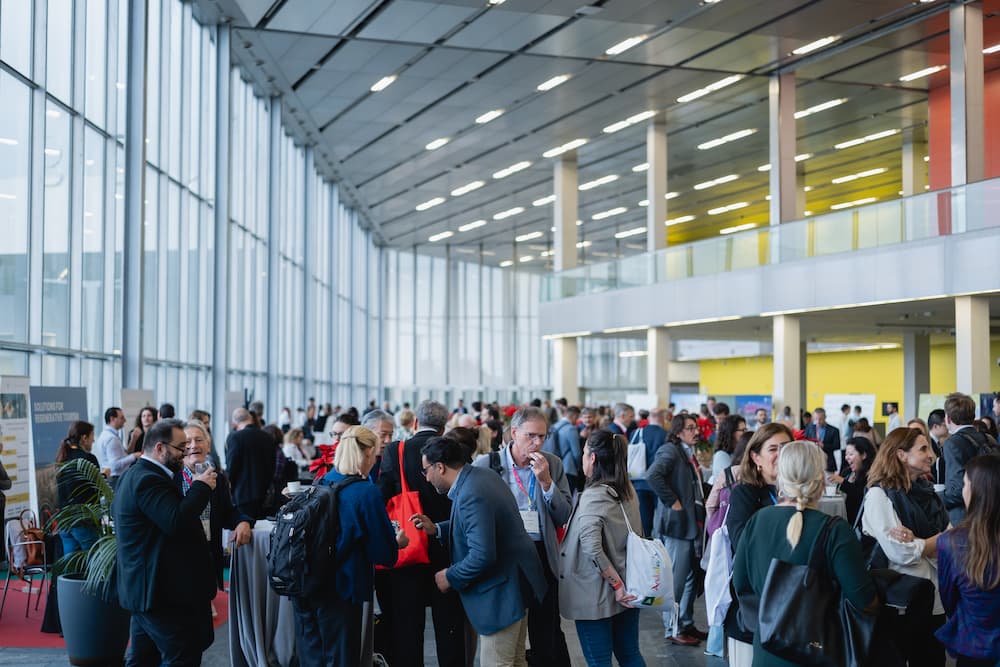
- Video recordings of all sessions
A huge thank you to the GSTC staff and board for putting on such an amazing conference! Many new friends and connections were made, and GreenStep is looking forward to working together to continue advancing the sustainability of the global tourism industry!

Thanks to the GSTC team for efficiently organizing the event and making us feel warmly welcomed. Our participation at the GSTC Conference 2023 was truly delightful and it made us feel like an integral part of the sustainability movement.

It’s been a great opportunity to participate in such a well-organized, productive event and attend a lot of engaging meetings, inspiring sessions, and panel discussions. I was also lucky enough to meet wonderful, like-minded people and establish a wide network with international professionals from more than 60 countries which would be great for building new collaborations towards more Sustainability in Travel and Tourism. Special thanks go to the GSTC team for hosting this event and for their tangible efforts in organization. You’ve proficiently managed to make this experience a remarkable and memorable one!

It has been intensive, informative, inspirational and interesting week at #GSTC2022 conference in Sevilla, Spain. The greatest thing was to meet people in person after talking with them online the past couple of years. Many plans are now on next steps thanks for face to face networking.

We found the conference to be an enriching experience in every aspect. The platform provided by the GSTC allowed us to significantly expand our network, enabling meaningful conversations and collaborations with like-minded professionals committed to sustainable tourism. The entire three-day event was brilliantly planned and executed, reflecting the GSTC’s commitment to promoting sustainable tourism and fostering a global community dedicated to this cause.

It’s been an engaging, enlightening, and fun couple of days in Seville at the GSTC Conference.

Such an incredible amount of content related to ESG, finished with a tremendous Turkish cuisine menu and fantastic local music! Congratulations for the entire organization… Im just thrilled :)

This was my 3rd GSTC conferences and I have to admit, it’s getting more and more popular among sustainable tourism heroes. Great panelists, great location and superb organization 👌

I am glad to have participated in the Global Sustainable Tourism Conference in Seville organized by the GSTC. It is inspiring to gather with so many like-minded professionals all united by the same goal: making tourism a vehicle for change toward a more sustainable world. Sustainability is not only a growing trend. It is becoming THE standard. 🌱

I have enjoyed 2 days of learning from my industry colleagues and experts from around the world at the GSTC Asia Pac conference in Korea. A lot of food for thought! I enjoyed this opportunity to learn the many different wonderful initiatives the conference participants are working on with their respective partners in moving towards our shared goal. Thanks to the GSTC team and also the Korean team for organizing such a fantastic event. I am looking forward to the next Global Sustainable Tourism Conference!

Kudos to the entire GSTC for an engaging and inspirational Summit. The content and the quality of the presenters were excellent. I left the Summit with rafts of information I am immediately applying to shape WWF’s conservation travel strategies.

Thank you Sevilla and GSTC for great conference days! Fantastic that so many countries in the world work to lead the way forward to a more sustainable tourism industry.

The best way to end a busy and restarting year like 2022, and not only in the world of tourism, was to attend the Global Sustainable Tourism Conference in Seville. More than 60 nationalities, among the most representative companies in the world of tourism meet to take a look at the state of sustainability in our sector and the main challenges to be accomplished. A very important appointment of confrontation, exchange and learning.

Frederik Reinfeldt Chairman of the board Visita

Carolina Mendonça Sustainability Coordinator, Azores DMO

Cheh Hsien Lee Assistant Chief Executive, Corporate and Sustainability, Sentosa Development Corporation, Singapore

Neil Rogers Tourism Advisor, Rewilding Europe

Ingunn Sørnes Special Advisor on Sustainability, Innovation Norway

Catherine Gilvarry Head of Supply, Hostelworld

Leigh Howard Chief Operations Officer, Tourism Fiji

Andreas Veilstrup Andersen CEO and President, Liseberg Group
Full list of speakers
Travel information.
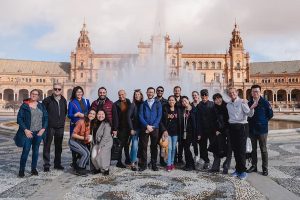
Visa : Do you need a visa to enter Sweden? Find out here .
How to get to Stockholm :
By Air: Stockholm Arlanda Airport (ARN) has direct flights from many European cities.
By Train: Stockholm has direct international connections to and from Norway and Denmark.
Accommodation is the responsibility of the participants.
We highly recommend early booking to secure these discounted rates, and also because a very large event (NordBygg) will take place in Stockholm at the same dates of GSTC2024 which causes a spike in demand around these dates.
More travel information here
More information about official hotels here
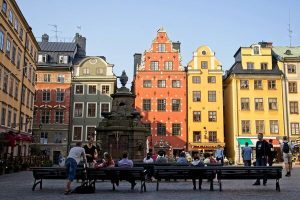
Stockholm, the capital of Sweden, is a captivating city with a rich history and a vibrant modern culture. Founded in the 13th century, this Scandinavian metropolis offers a unique blend of historical charm and contemporary innovation. Visitors can explore the Royal Palace, wander through the cobbled streets of Gamla Stan (Old Town), and discover the remarkable Vasa Museum, housing a perfectly preserved 17th-century warship. With its picturesque archipelago and cultural events like the Nobel Prize ceremonies, Stockholm offers a diverse and enriching experience for travelers.
More information about Stockholm
Royal Djurgården

More information about Royal Djurgården
Why is it urgent to meet, develop new solutions, and transform?
The hospitality industry creates new jobs that contribute to increased growth and employment in both larger regions and sparsely populated areas and is a large export industry in many countries. The tourism industry is one of the main engines of the world economy. It is constantly changing to respond to the fluctuating needs of customers, so technology innovation is present in all the scopes of tourism.
- Environmental hurdles like rising temperatures and natural disasters have a great impact on society. A warmer world affects the travel industry in many ways and changes alter travel paths. Storms and floods disrupt coastal getaways, leaving sunny shores battered. The carbon footprint of extensive travel (car/air/boat/bus) has contributed significantly to environmental concerns such as climate change.
- A balance between exploration and preservation is achieved through sustainable practices and technology. Conflict of interest can arise at regional economic development versus preservation of nature.
- Political and social instability refers to the turbulence and uncertainty that can arise within a country or society due to a range of factors. These factors often include political conflicts, economic hardships, social inequality, and cultural tensions.
Tourism can contribute to attractive places for visitors, residents, businesses, and investments throughout the country when places and actors work together by:
- Understand the world perspective and adjust to it, act climate and environmental smart to protect and preserve . Be welcoming and inclusive to engage visitors, residents, businesses and local society.
- Develop Thriving and innovative business for long-term competitive business and act transparent and communicative (credible assurance).
During the GSTC2024 Global Sustainable Tourism Conference in Stockholm, Sweden, we will meet inspiring speakers who will demonstrate solutions and new models. By meeting and taking part in the work of others, we can continue to develop, contribute to economically strong and long-term countries and transition that will reduce the negative climate impact.
Organizers

Sustainable and affordable housing to support green growth in Sweden
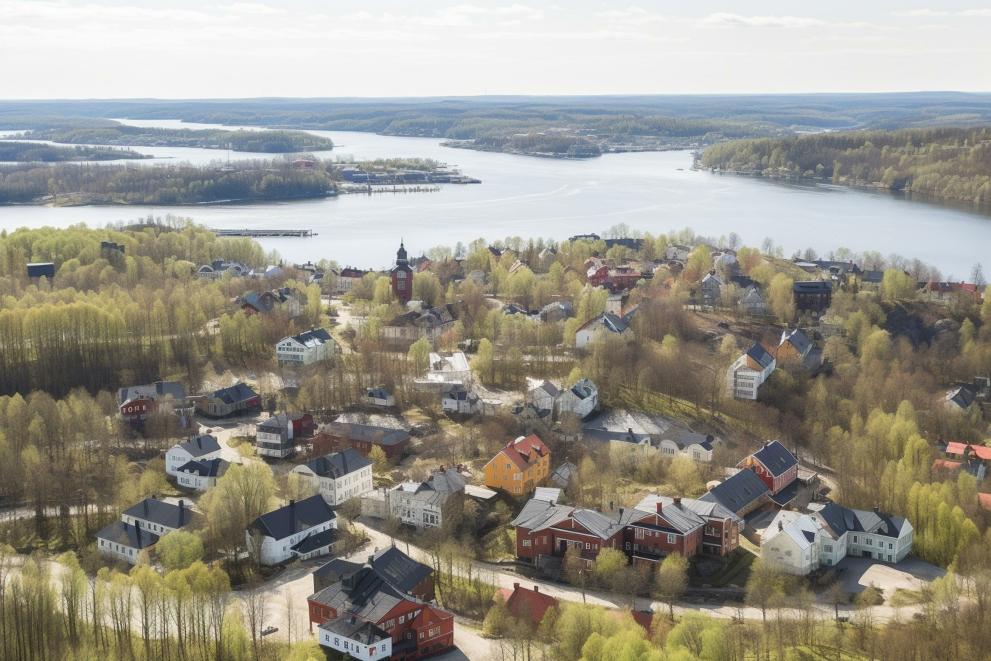
The Grant Agreement for the Sustainable and Affordable Housing for the New Green Industry and Society (SHERIS) project, which will support the construction of 7 housing complexes in Northern Sweden, has just been signed. SHERIS is financed by the European Union under the Public Sector Loan Facility, which is part of the Just Transition Mechanism (JTM) , with a grant of EUR 11 million. The grant complements a loan of EUR 71 million (SEK 800 million) awarded by the European Investment Bank (EIB) , bringing the total budget for the project to EUR 142 million (SEK 1.6 billion).
The JTM PSLF support will facilitate the social transformation and urban development of Skellefteå needed to adapt to the emergence of a new green industry by supporting the construction of 7 housing complexes with around 750 energy-efficient social housing units.
“Through this project, the Public Sector Loan Facility will help the municipality of Skellefteå address the increasing demand of its rapidly growing population for sustainable and affordable housing, helping the city respond to its transformation needs. This inspiring project proves that the challenges deriving from the green transition can be addressed, and that EU investments are available to ensure so that no one and no region is left behind.”
Emma Toledano, Director at European Commission, Directorate-General for Regional and Urban Policy
As the region of Västerbotten is shifting from mining and energy intensive industries to green economy, the municipality of Skellefteå finds itself at the forefront of the region’s green transition. With the establishment of a battery gigafactory (Northvolt) that requires a new skilled workforce, the municipality’s population is estimated to increase from 74,000 to more than 90,000 inhabitants by 2030.
“CINEA is proud to be supporting the green transformation of Skellefteå through the construction of sustainable, affordable and inclusive social housing for the municipality’s rapidly growing population. The Public Sector Loan Facility under the Just Transition Mechanism is exactly there to ensure that the transition to the green industry is fair to all EU citizens.”
Paloma Aba Garrote, CINEA Director
Around half of the affordable housing programme will target students of the expanding Skellefteå university campus to support the supply of new skills in the ongoing social and economic transformation. In addition, around 20% of the new housing will be made available for social lease contracts which will offer accommodation for people with low income or special needs and refugees to promote the development of inclusive communities.
"Skellefteå's social transformation is a challenge and a driver in the green transition. The PSLF grant from the European Commission and the loan from the EIB will help us to maintain a high pace in the production of new housing, a key factor in making the transition a reality. By providing energy efficient living areas, not only in the central parts of Skellefteå, but also outside, the project aligns with both the new environmental and climate programme and the mission to make Skellefteå climate neutral by 2030."
Lorents Burman, Chairman of the Municipal Board at Skellefteå Kommun
Share this page

IMAGES
VIDEO
COMMENTS
Sustainable travel. Sweden has a lot to offer as a sustainable tourism destination. Accessible nature and our close to nature lifestyle, innovative dining experiences with respect for both humans and the environment, and local cultural experiences with design and architecture created for people, to be used.
Sweden recently came first in the list of 'Top Countries for Sustainable Tourism', produced by Euromonitor, why do you think Sweden is ranked as the best country for sustainable tourism? Sweden generally is strong in governance, ability to handle environmental challenges, how well we meet the UN's global environmental goals, comply with ...
5 sustainable eco tourism experiences in Sweden Nature's Best is an eco certificate that verifies ethical, high quality nature tours and accommodations in Sweden. It was developed by travel associations, landowners, nature conservation associations, non-profit organisations, public authorities, tourist companies and institutions.
Such a sustainable restart will be easier for some countries than for others. A new report by Euromonitor International details the nations leading the way for sustainable tourism, and those lagging far behind. These are the top 10 countries for sustainable tourism. 1. Sweden. 2. Finland. 3. Austria. 4. Estonia. 5. Norway. 6. Slovakia. 7 ...
Europe. The No. 1 Sustainable Travel Destination: Sweden. May 21, 2021/. When Euromonitor International ranked 99 countries worldwide on their Sustainable Travel Index in a report in 2020, Sweden came out as the number one country. Sustainable travel refers to a trip where you experience the natural beauty of a country without disturbing the land.
Sustainable Travel & Ecotourism in Sweden. Sustainable tourism is conscientious travel. It means being careful with the environments you explore and respecting the communities you visit. Two overlapping components of sustainable travel are ecotourism and ethical tourism. The International Ecotourism Society (TIES) defines ecotourism as ...
Advertisement. In a press conference on Monday, Sweden's Minister for Business, Industry and Innovation Ibrahim Baylan outlined the new strategy, which aims to make Sweden "the world's most sustainable and attractive tourism destination built on innovation" by 2030. Baylan referred to Sweden as a country which "is usually ranked as one of the ...
STF is a non-profit organization dedicated to sustainable tourism, based on Sweden's natural and cultural heritage. 250. 250 places to stay. STF offers 250 hostels, hotels, guest houses, mountain stations and mountain cabins, from north to south. Learn more about STF. Contact STF.
Sweden ranked second in the UN Sustainable Development Report and the Global Innovation Index, and topped the Global Sustainable Competitiveness Index. 2022. More than 60 per cent of Sweden's electricity comes from renewable sources. 2023. Sweden ranked second in the Global Innovation Index. 2030. Goal: The Swedish transport sector is fossil ...
Sweden has been ranked first in Euromonitor International's Sustainable Travel Index, which ranks 99 countries worldwide based on their commitment to sustainable tourism. "Sweden is a leader in ...
The city has countless bus lines, trams, metro lines, and ferries that allow you to sustainably travel wherever you want. Additionally, it's worth noting that the buses and trains in Stockholm have used entirely renewable energy since 2017. Sweden aims to make public transport in its capital 100% sustainable, and it's well underway in ...
For a sustainable tourism industry in West Sweden. Together we create economically viable businesses and tourism that does not have unnecessary environmental impacts and is appreciated by residents and visitors alike. By joining, you are contributing to a sustainable tourism industry.
They represent the best eco tourism attractions in the country, minimizing their, and your, impact on the environment. Last updated 18 November 2020. 1. Biking Dalarna. If you didn't know it Dalarna is a province in central Sweden famous for its cute, floral-painted Dalecarlian model wooden horses and the Vasaloppet marathon ski race.
Sweden even has its own eco-tourism charter, following in Australia's footsteps, with Nature's Best certified travel operators and 23 cities claiming to be carbon neutral through the Viable Cities programme by 2030. Sweden's Performance in the Sustainable Travel Index Pillars 2021 Source: Euromonitor International Note: Rank 1 is highest
Sweden, Finland and Austria are the places to go to ... Demand, Transport and Lodgings - determining the comparative performance of sustainable travel and tourism for 99 countries through scores ...
Nature tourism creates the conditions for achieving several sub-goals in Sweden's continued work with the UN's global sustainability goals - Agenda 2030. In particular the goals of sustainable consumption and production, to protect ecosystems and biodiversity, and to combat climate change.
Focused on devising a sustainable tourism strategy, Sweden is working to promote rural and regional tourism in core cities. "The country also benefits from efficient transport infrastructure and alternative forms of travel besides air to help appease flight-shaming. For sustainable lodging, Sweden serves as a role model with its award-winning ...
In 2019, we spent SEK 5 million to promote sustainable nature experiences to tourists globally. In January 2019, the global initiative, 'The Edible Country' was launched. Foreign tourists see Sweden as a sustainable destination and want to discover local food experiences throughout the country. In order for tourists to get more inspiration ...
Visit Sweden's task was extended during the pandemic to include domestic marketing focusing on sustainable nature tourism. Sweden has set up a regional tourism network in regions which do not have a destination management organisation. The network is an important tool for communication and collaboration with industry organisations and ...
Tourism-related expenditure was SEK 337 billion in 2018, up 6% on 2017. The value added generated by this expenditure contributed 2.6% to Sweden's GDP. Overseas tourists spent SEK 144 billion making a 6.4% contribution to total exports. The industry employed 172 000 people an increase of 1.7% over 2017 but slightly below national employment ...
Unique accommodation close to nature - 29 sustainable places to stay in Sweden. From rustic eco-lodges and historic cabins to floating hotels and modern glamping - the Swedish forest is scattered with unique places to stay. Discover the luxury of going off-grid and enjoy the sound of silence while leaving as few footprints as possible.
The GSTC2024 Global Sustainable Tourism Conference will take place in Stockholm, Sweden, from April 23rd to April 26th, 2024. The event aims to unite global and local tourism professionals engaged in advancing and advocating for sustainable travel and tourism. This includes participants from the public sector, hotels, tour operators, corporates ...
The Grant Agreement for the Sustainable and Affordable Housing for the New Green Industry and Society (SHERIS) project, which will support the construction of 7 housing complexes in Northern Sweden, has just been signed.